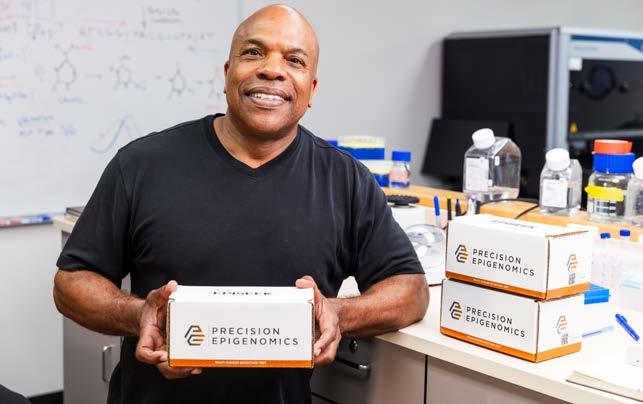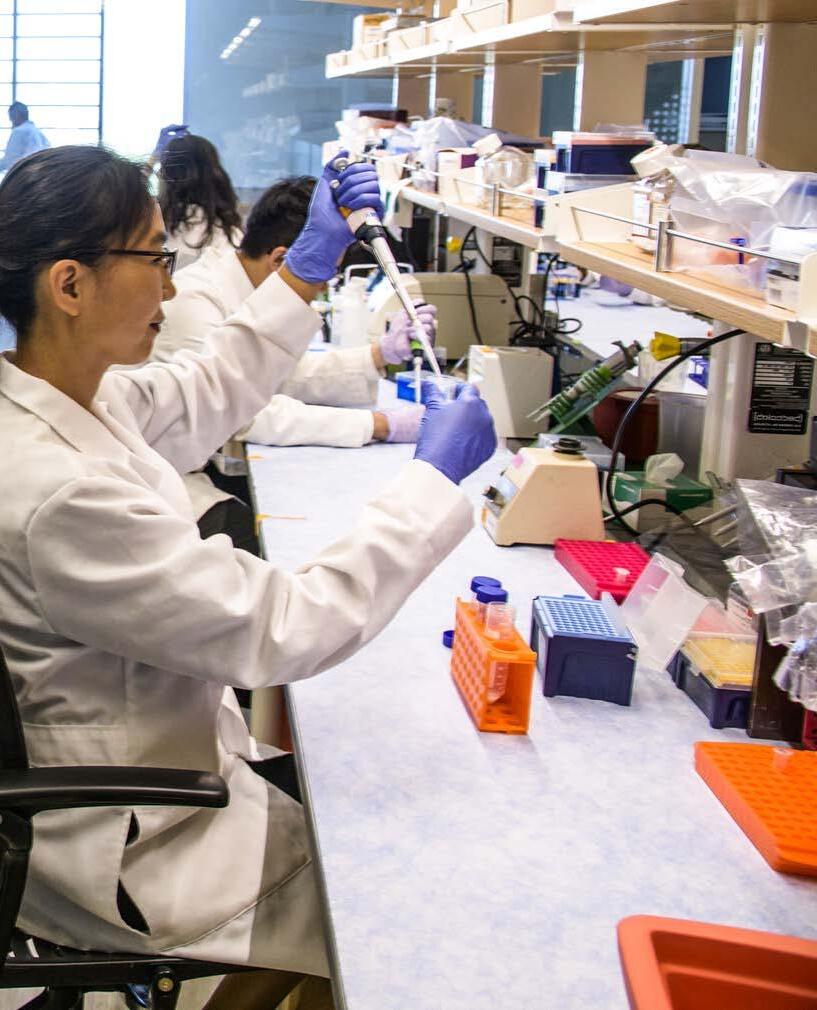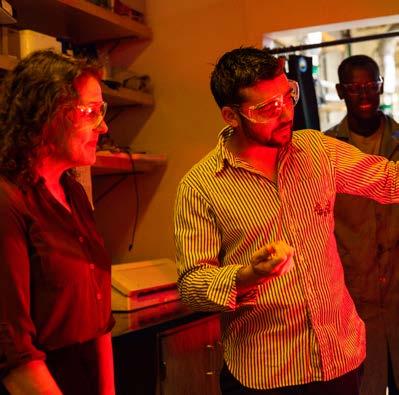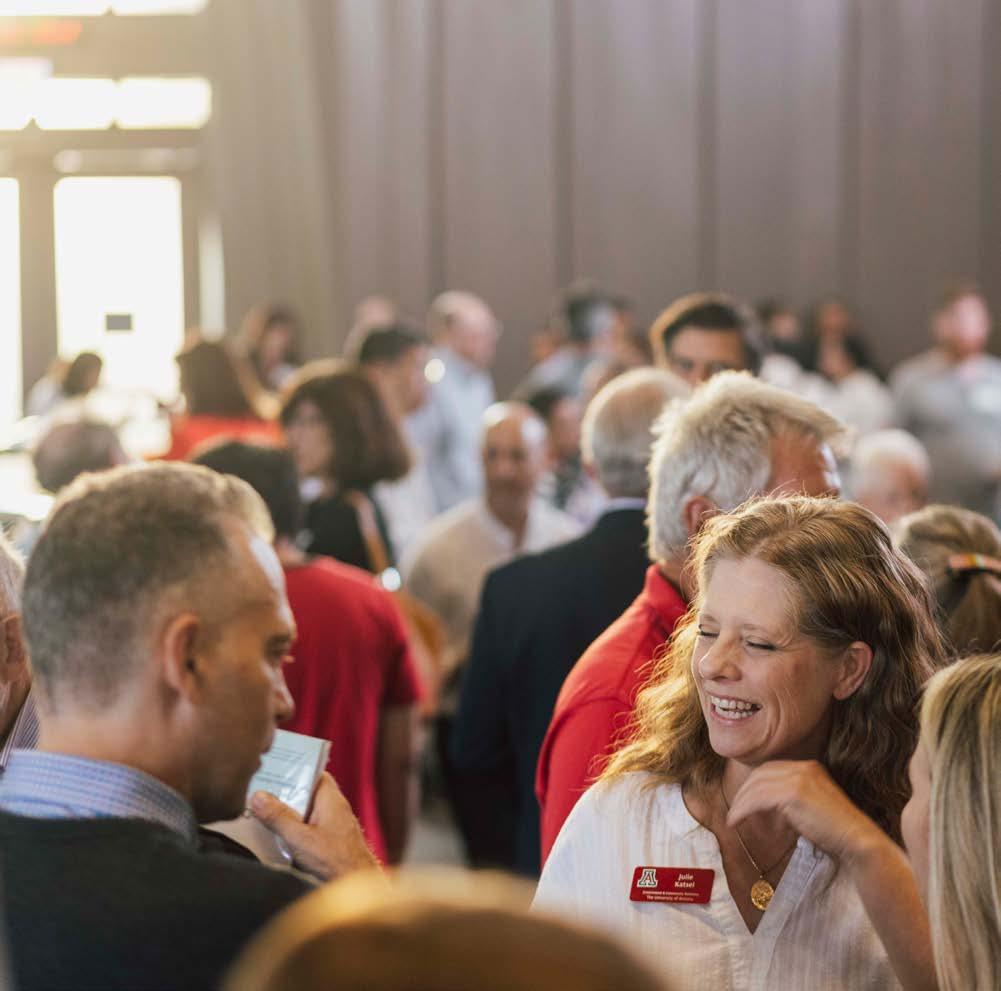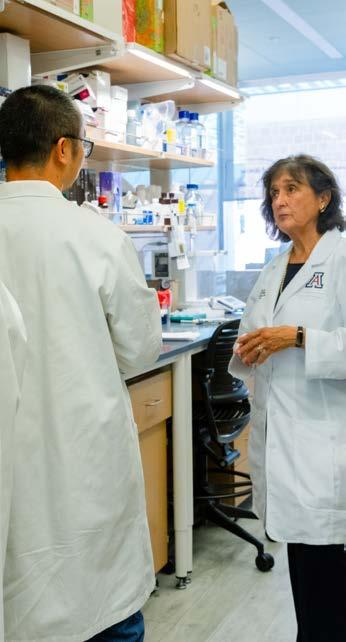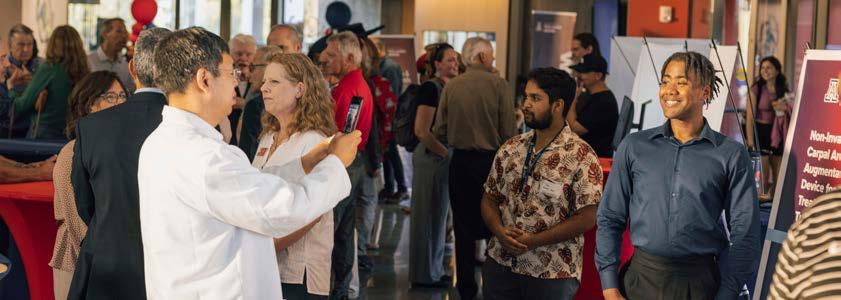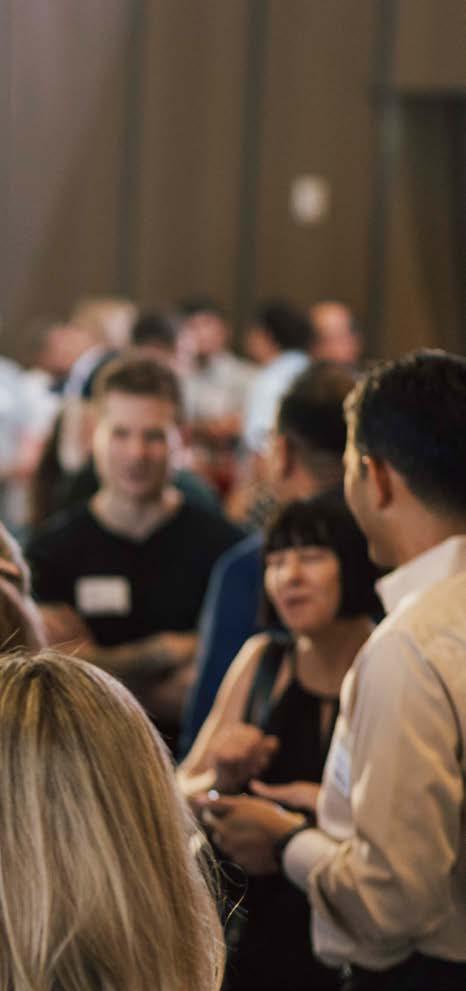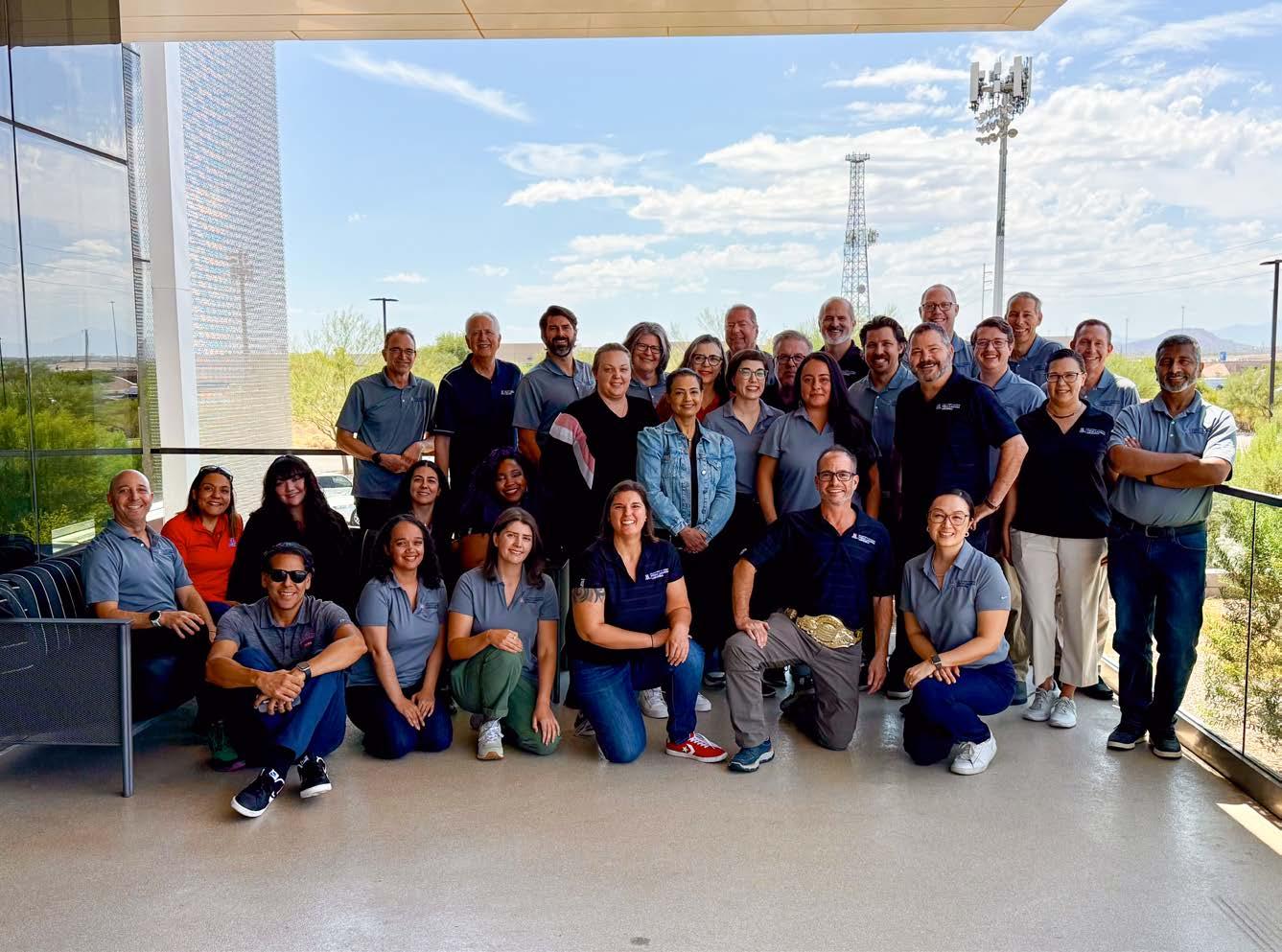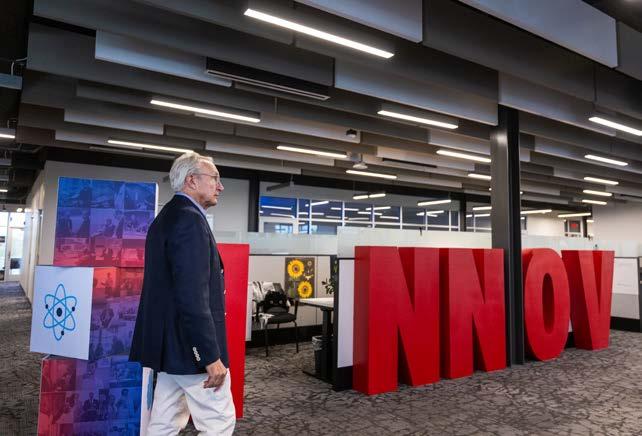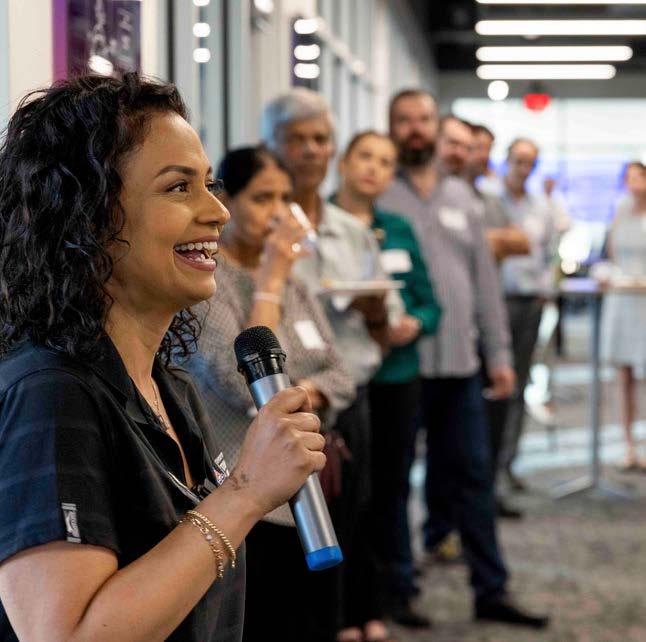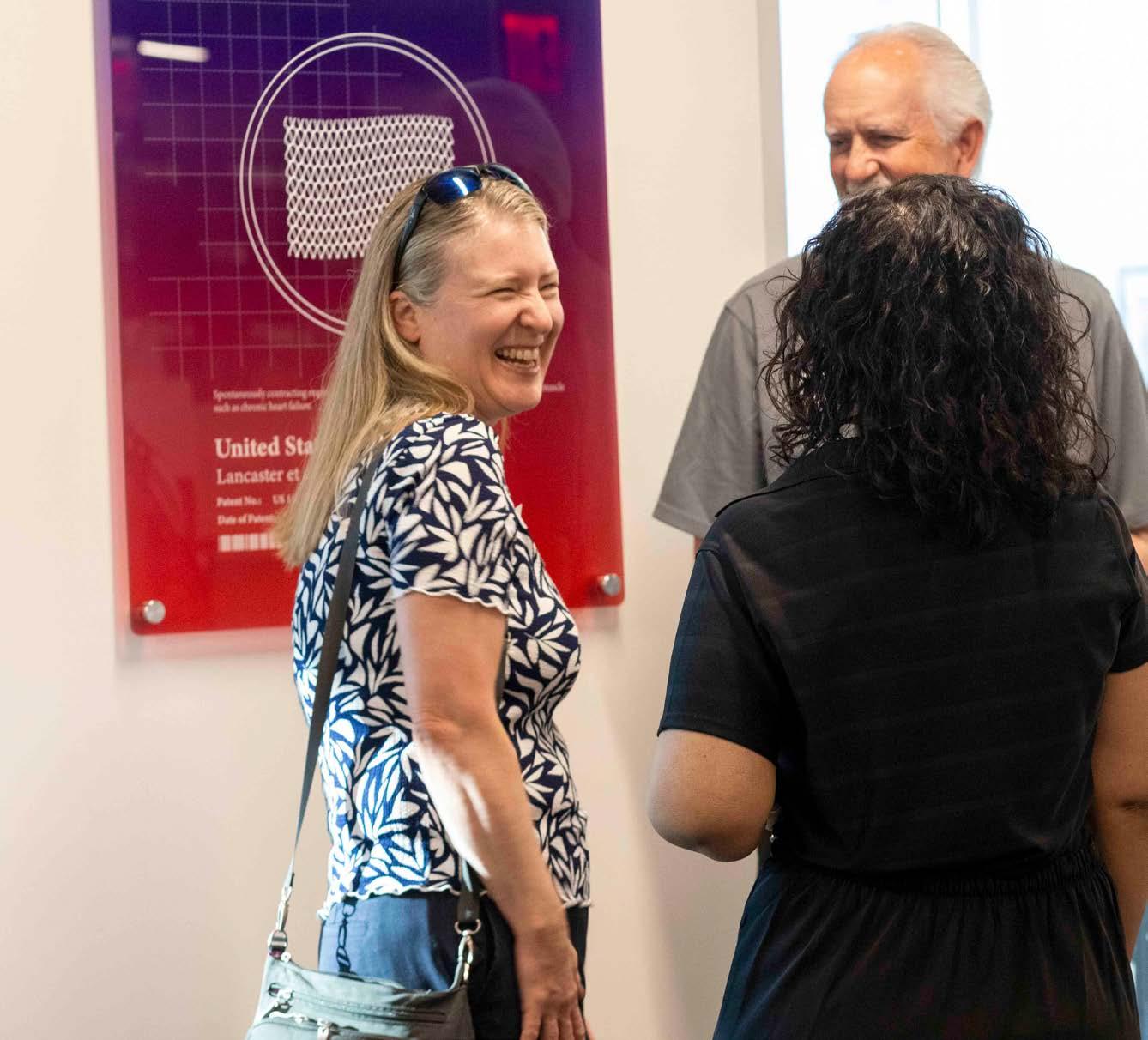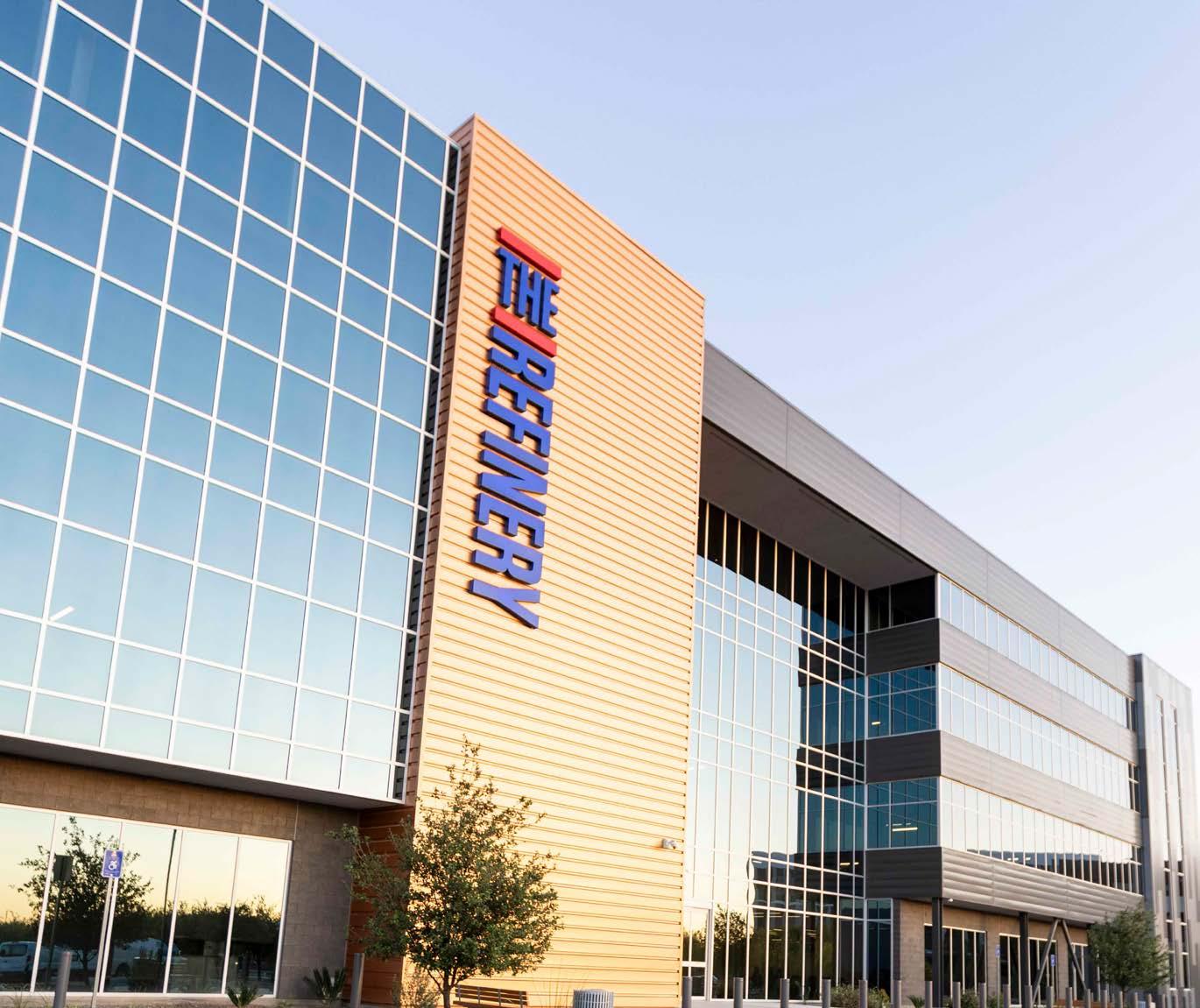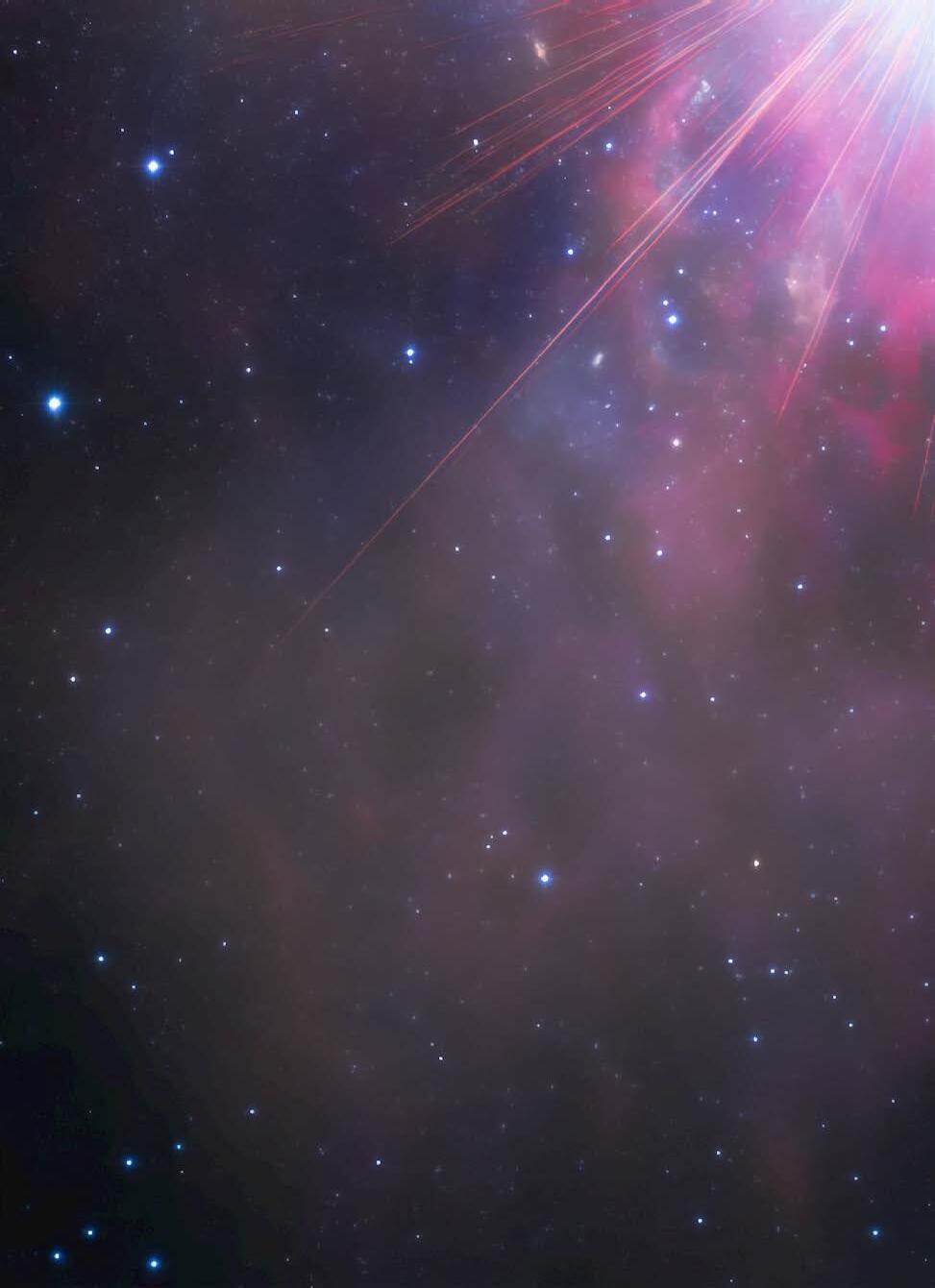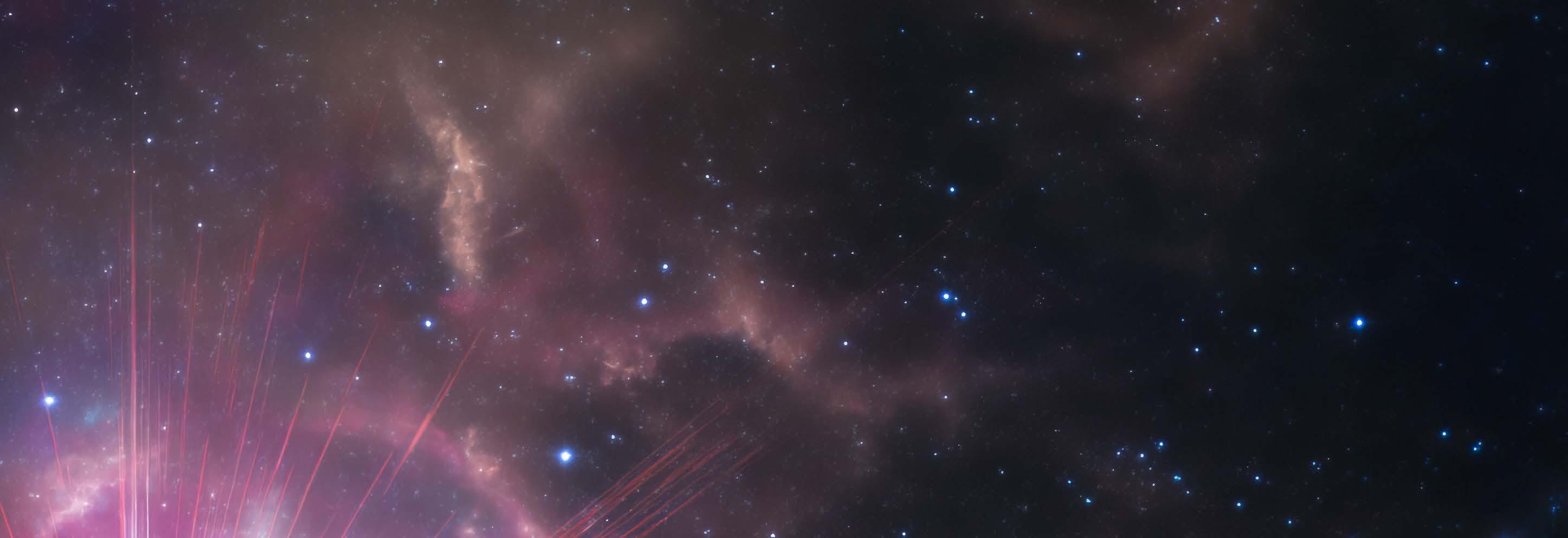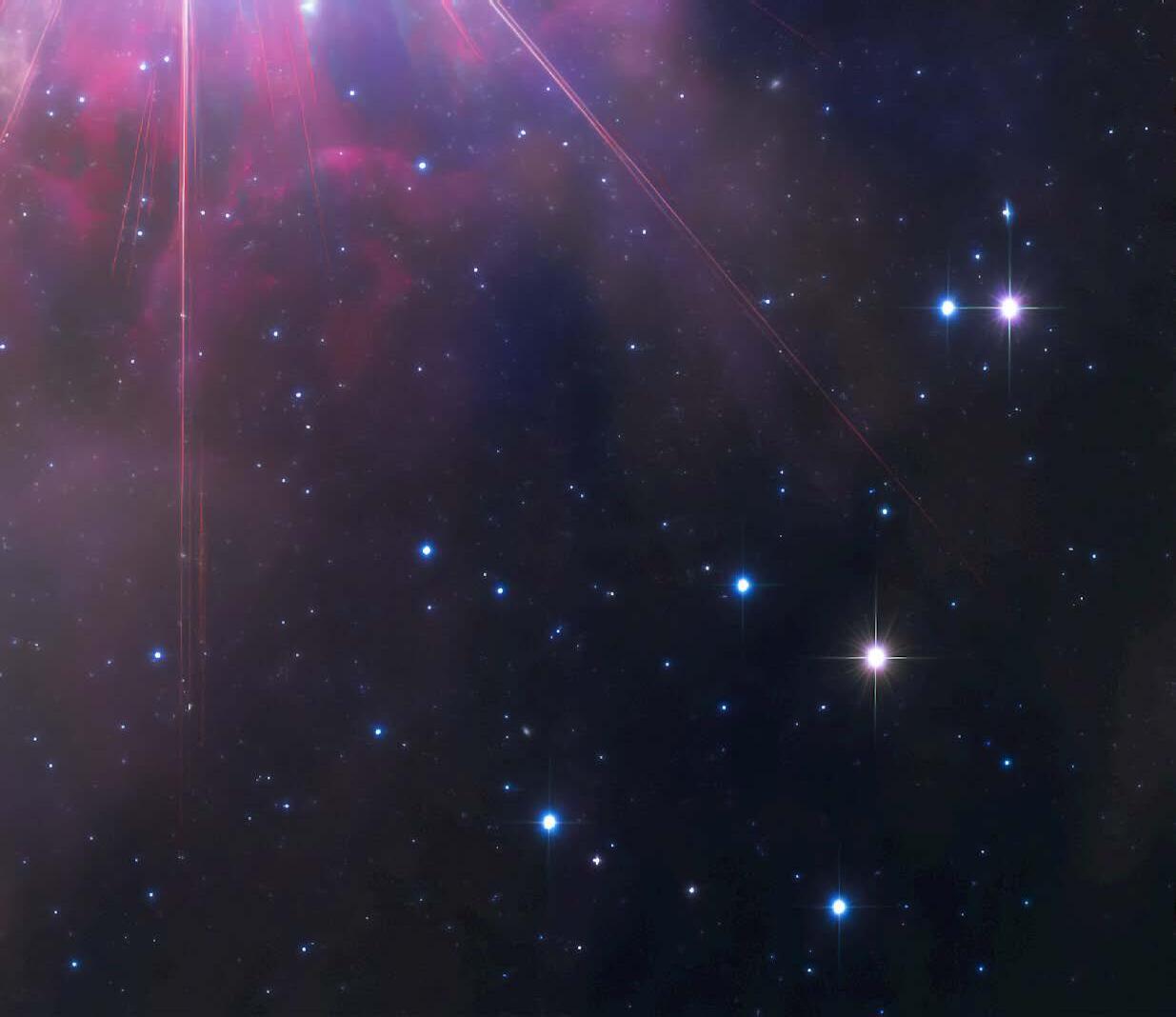
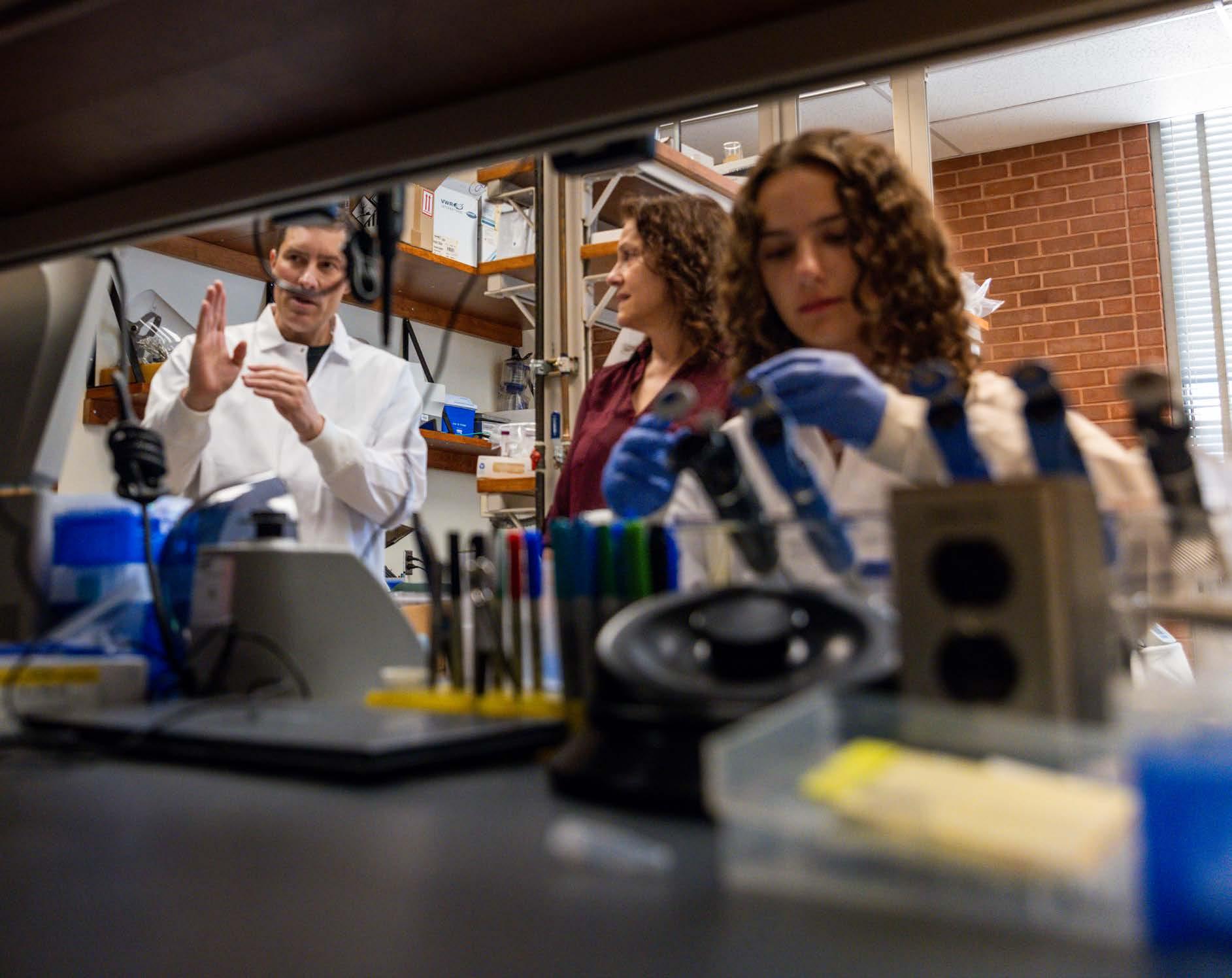








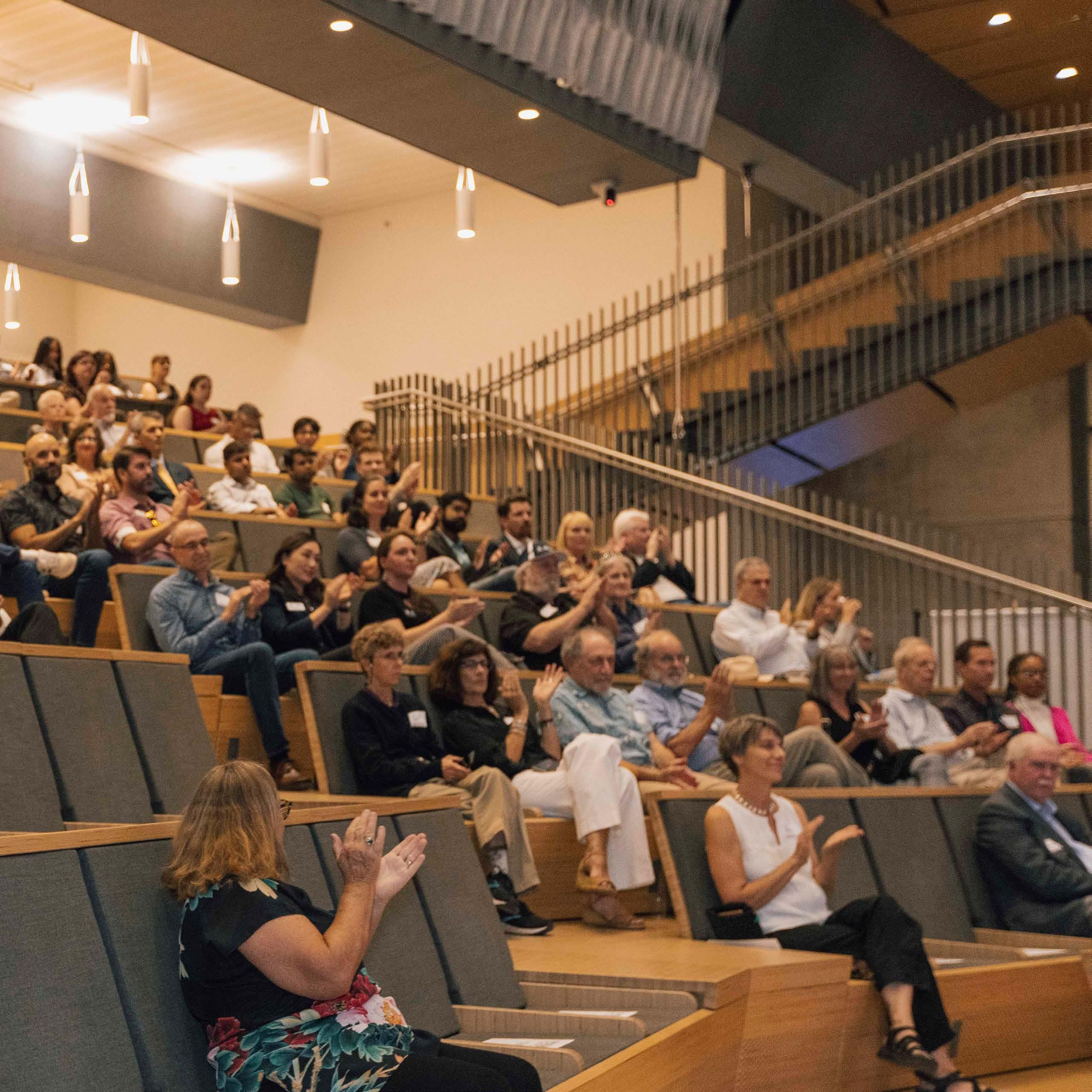



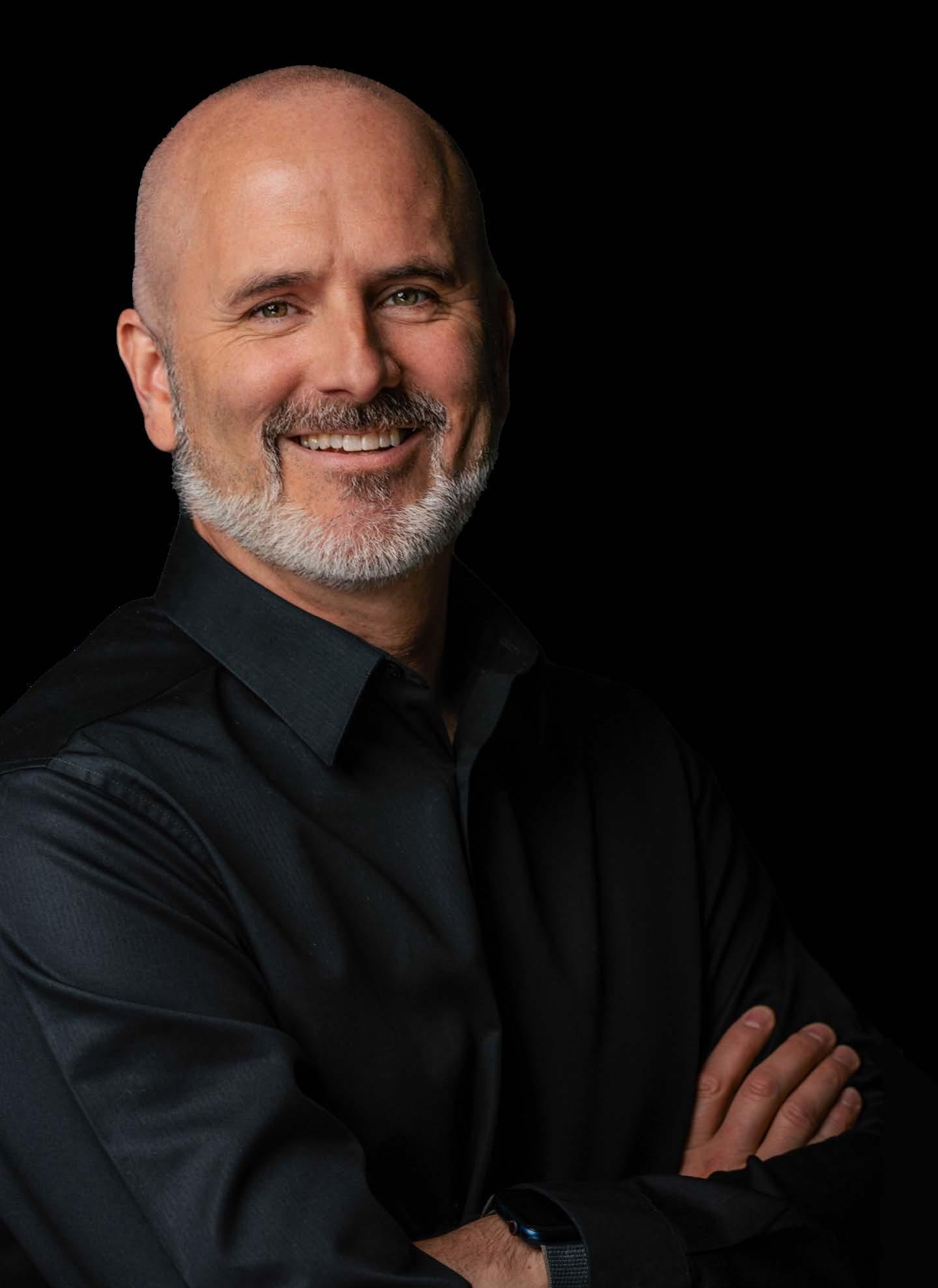
Ten years ago, in his address to the 2015 graduating class of George Washington University, Tim Cook, CEO of Apple, said, “You don’t have to choose between doing good and doing well. It’s a false choice, today more than ever … Find your North Star. Let it guide you in life and work and in your life’s work.”
One year ago, we at TLA had just reported that we broke our previous record for invention disclosures, launched nine startups and had reached our initial funding goal for the Wildcat Philanthropic Seed Fund (WPSF) to help early-stage U of A-affiliated startups span the “valley of death.”
For FY25, I’m happy to note our metrics continue to climb. In the past 12 months, we’ve received the most invention disclosures to date, launched 13 startups, made our first WPSF investments and generated more in royalties and other income than ever before for the University of Arizona. As we begin FY26, I’m full of optimism and excitement for the opportunities ahead.
We’re doing good and doing well. Our mission of making a better world continues to advance and evolve, and we thank you for being a part of it.
– DOUG HOCKSTAD ASSOCIATE VICE PRESIDENT

At the University of Arizona, we believe that the true value of research lies in its power to serve society. Tech Launch Arizona embodies this commitment by turning university-driven discoveries into practical solutions, new ventures and commercial products that improve lives and support communities.
This year’s record-setting results reflect not only the creativity and dedication of our faculty, staff and students, but also the outstanding work that the dedicated staff at TLA carry out every day. Their work helps bring ideas and discoveries to life, like preventing healthcare provider burnout and harnessing green light as a therapy for managing pain. By working closely with industry, investors and entrepreneurs, we are creating real-world impact and helping to grow Arizona’s economy in meaningful and lasting ways.

Looking ahead, we are focused on expanding our ability to translate more discoveries into practical applications for Arizona, the nation and beyond. Our goal is to empower more U of A innovators to connect their research with societal needs and make Arizona a national leader in research-driven public impact. I invite the university’s boldest minds from across disciplines to engage with TLA and help shape the future of our land-grant mission, where knowledge and creativity are driven by purpose to shape a better world.
Sincerely,
– TOMÁS DÍAZ DE LA RUBIA SENIOR VICE PRESIDENT FOR RESEARCH AND PARTNERSHIPS

Metrics aren’t the be-all or end-all, but they are an excellent indicator of how we’re doing, how we’re growing and the impact we’re creating.

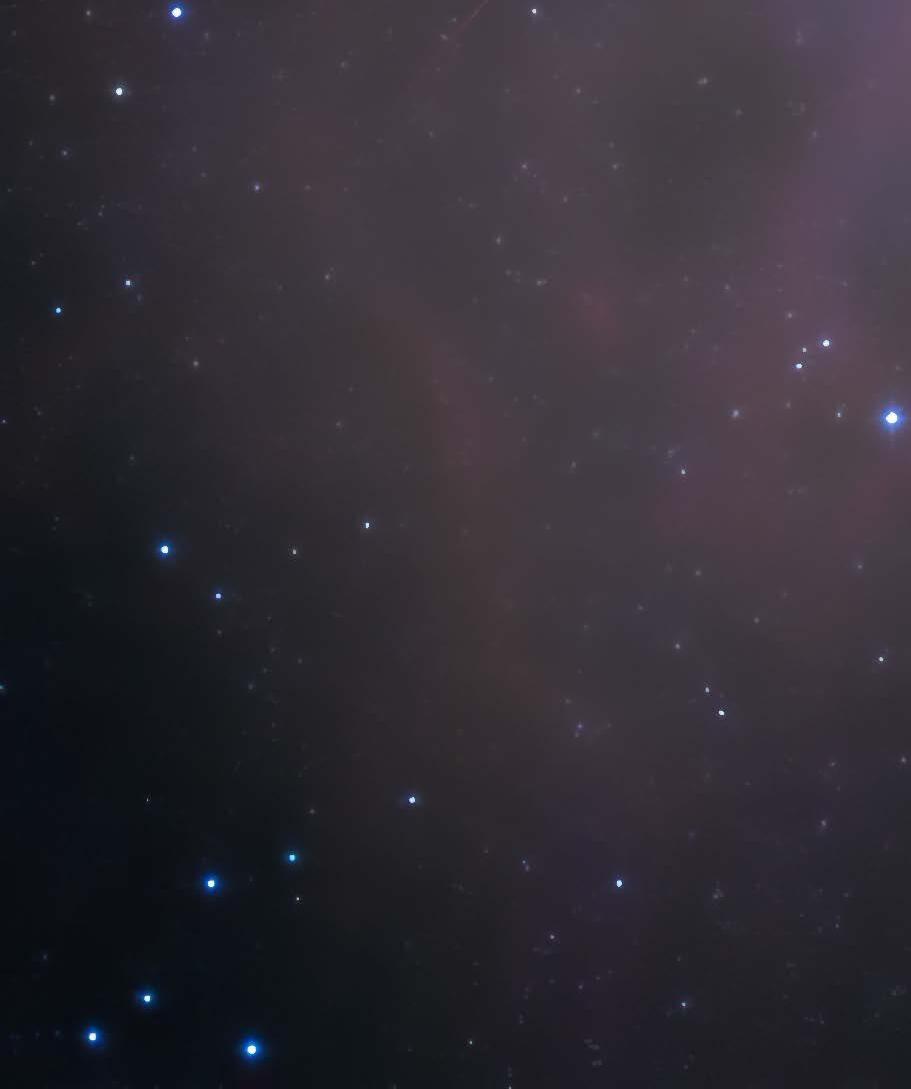



“Every single license is an important milestone in getting these raw technologies to market. But when new companies are founded to bring inventions to market, not only do new technologies find a path to market, but also these new companies create jobs and economic impact for our community and our state.”
– DOUG HOCKSTAD
REBUILD AFTER STROKE, founded to empower stroke survivors on their journey to recovery with educational content and practical assistance.
Kristian Doyle, College of Medicine –Tucson and the BIO5 Institute
LIFESPAN DIGITAL HEALTH, helping to solve physician shortages by preventing healthcare provider burnout.
Dr. Samuel Keim, College of Medicine – Tucson
VOICES UNHEARD, a startup formed to market a documentary film made in the College of Agriculture, Life & Environmental Sciences (CALES) about groundwater pollution.
Sandra Westdahl, BA from the U of A School of Journalism

DBXL, providing educational materials that build learners’ finance, data analytics and critical thinking skills.
David Brown, Eller College of Management
PROXYBIO, INC., helping pharmaceutical companies and physicians identify the most effective therapies through an innovative, high-volume compound screening platform.
Kelvin Pond, Curtis Thorne, Samuel Campos, Elaheh Alizadeh, Koenraad Van Doorslaer and Chonlarat Wichaidit, College of Medicine – Tucson, BIO5 Institute and the U of A Cancer Center
KUAIRU, advancing a design for a solar tower for large-scale drying of food waste.
Goggy Davidowitz, College of Agriculture, Life & Environmental Sciences
RESPIRADIGM, advancing a new risk assessment test for asthma development at birth.
Dr. Fernando Martinez and Dean Billheimer, College of Medicine –Tucson and the BIO5 Institute
AGING HEALTH SCIENCES, a research-driven nutraceutical company specializing in eye health.
Brian McKay, College of Medicine –Tucson and Dr. Robert Snyder
SENPHONIX, INC., bringing to market wearable technologies that capture high-fidelity physiological data for an uninterrupted, automated view of patient health.
Philipp Gutruf, Tucker Stewart, College of Engineering and the BIO5 Institute
INC., advancing therapies based on multi-targeted kinase inhibitors to address metastatic cancer.
Christopher Hulme, Curtis Thorne, Dr. Sourav Banerjee (University of Dundee), Nathan Bedard, Carly Rose Stoll, Alessandra Fistrovich, Yeng Jeng Shaw, Timothy Chavez and Samantha Rokey, College of Medicine – Tucson, College of Science, College of Pharmacy, the BIO5 Institute and the U of A Cancer Center

VERDITX, developing technologies to harness green light as a therapy for managing pain.
Dr. Mohab Ibrahim and Rajesh Khanna (University of Florida, formerly with the U of A), College of Medicine –Tucson
ASPIRO THERAPEUTICS, INC., advancing disease-modifying therapies that target the underlying mechanisms of conditions like asthma and COPD.
Julie Ledford, Michael D. L. Johnson, Josef Vagner, and Stefano Guerra, College of Medicine – Tucson and the BIO5 Institute
IMAGINE DESIGN, harnessing diagnostic intelligence to allow clinicians to correlate symptoms with changes in mobility to help care providers make treatment and intervention decisions.
Janet Roveda, Kavan Hazeli, Bahram Jalali (UCLA), Xuejing Wang, and Rylie Watson (former U of A graduate research assistant), College of Engineering and the BIO5 Institute
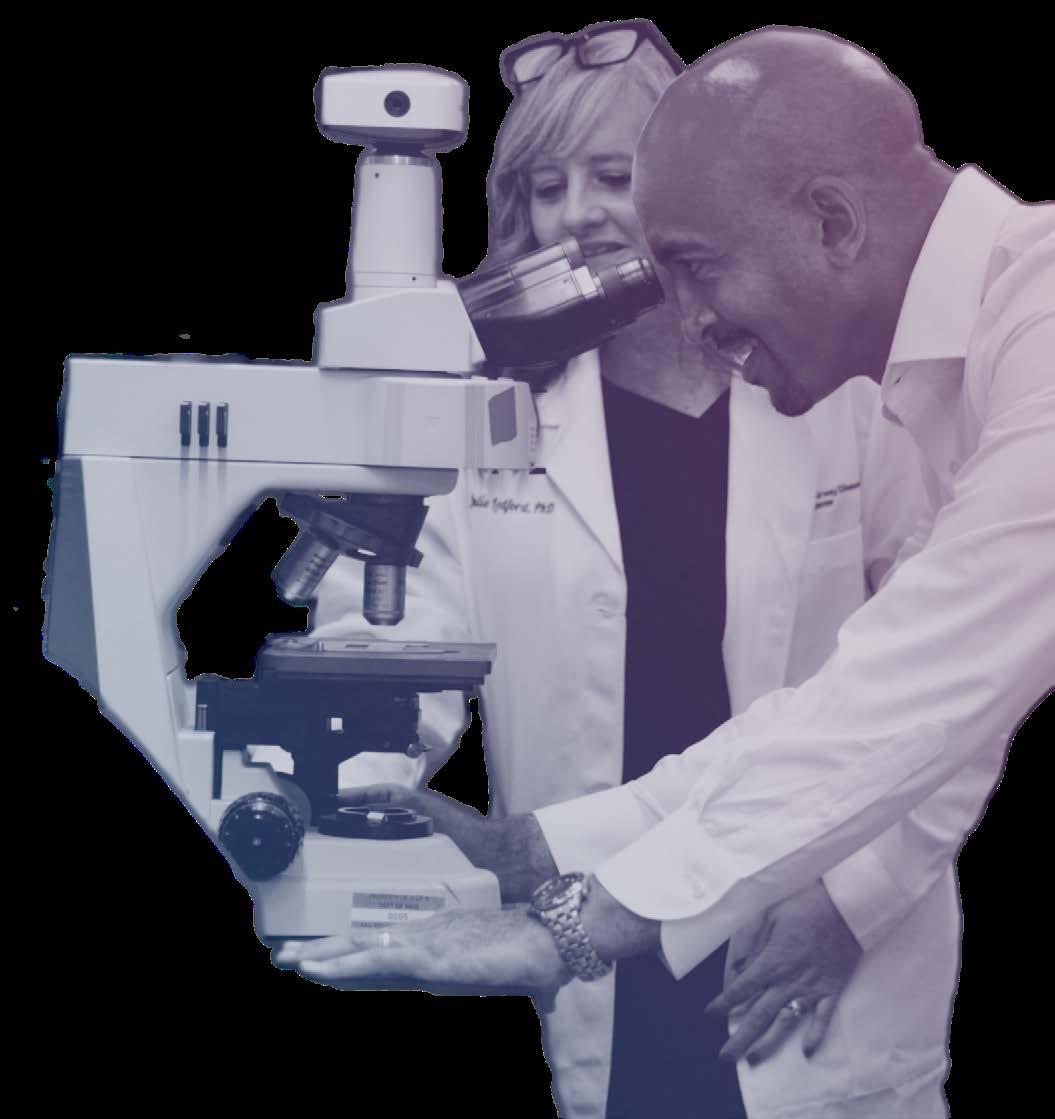
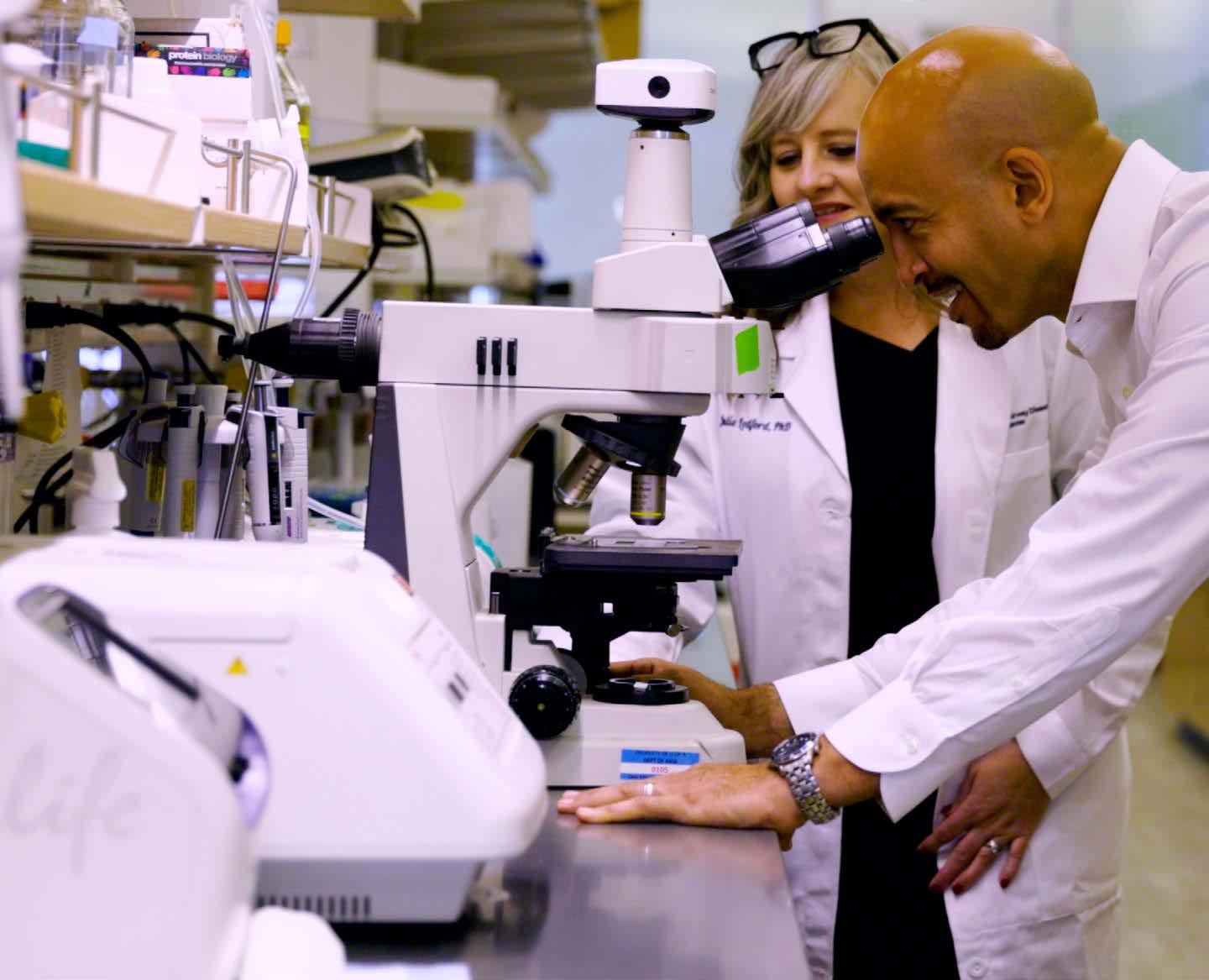
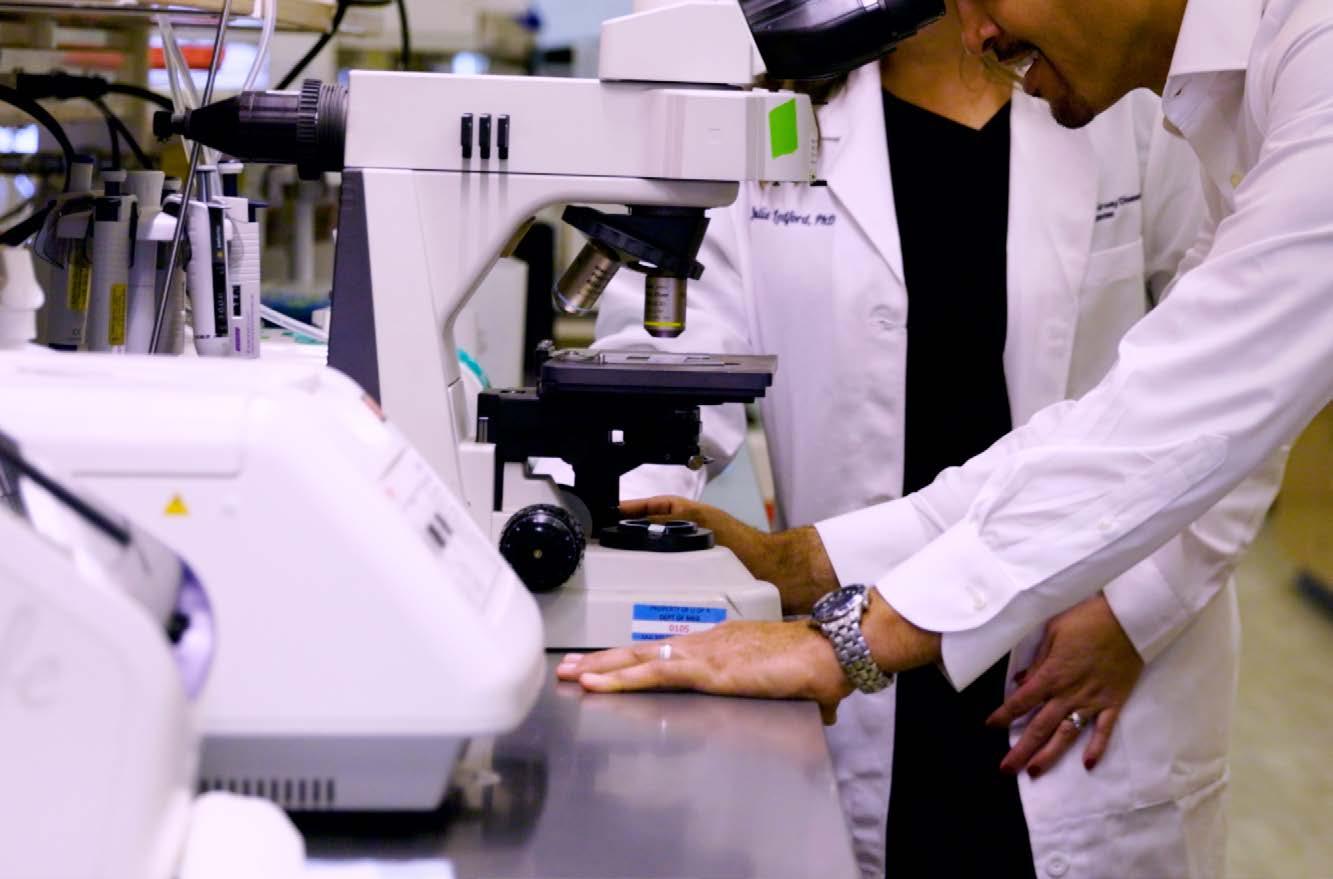
Awarded annually by the Office of the Provost.
George Sutphin
University Early Career Innovation & Entrepreneurship Award
George Sutphin is currently an assistant professor of molecular and cellular biology and the BIO5 Institute. In his lab, he and his colleagues study the molecular mechanisms of aging and ageassociated disease using C. elegans, cell culture and mice as model systems, with a focus on the intersection between metabolism and cellular stress response.
As a natural continuation of this work, Sutphin has engaged with TLA to commercialize a high-throughput screening method for aging-related drug discovery utilizing C. elegans.
Dr. Marvin Slepian
University Distinguished Innovation & Entrepreneurship Award
Marvin Slepian, MD, JD, is a Regents Professor with professorships in medicine, medical imaging, surgery, biomedical engineering, materials sciences, chemical and environmental engineering, chemistry and law.
He is also a seasoned inventor and is serving a three-year term as one of the nine individuals who comprise the Patent Public Advisory Committee (PPAC) of the United States Patent and Trademark Office (USPTO).
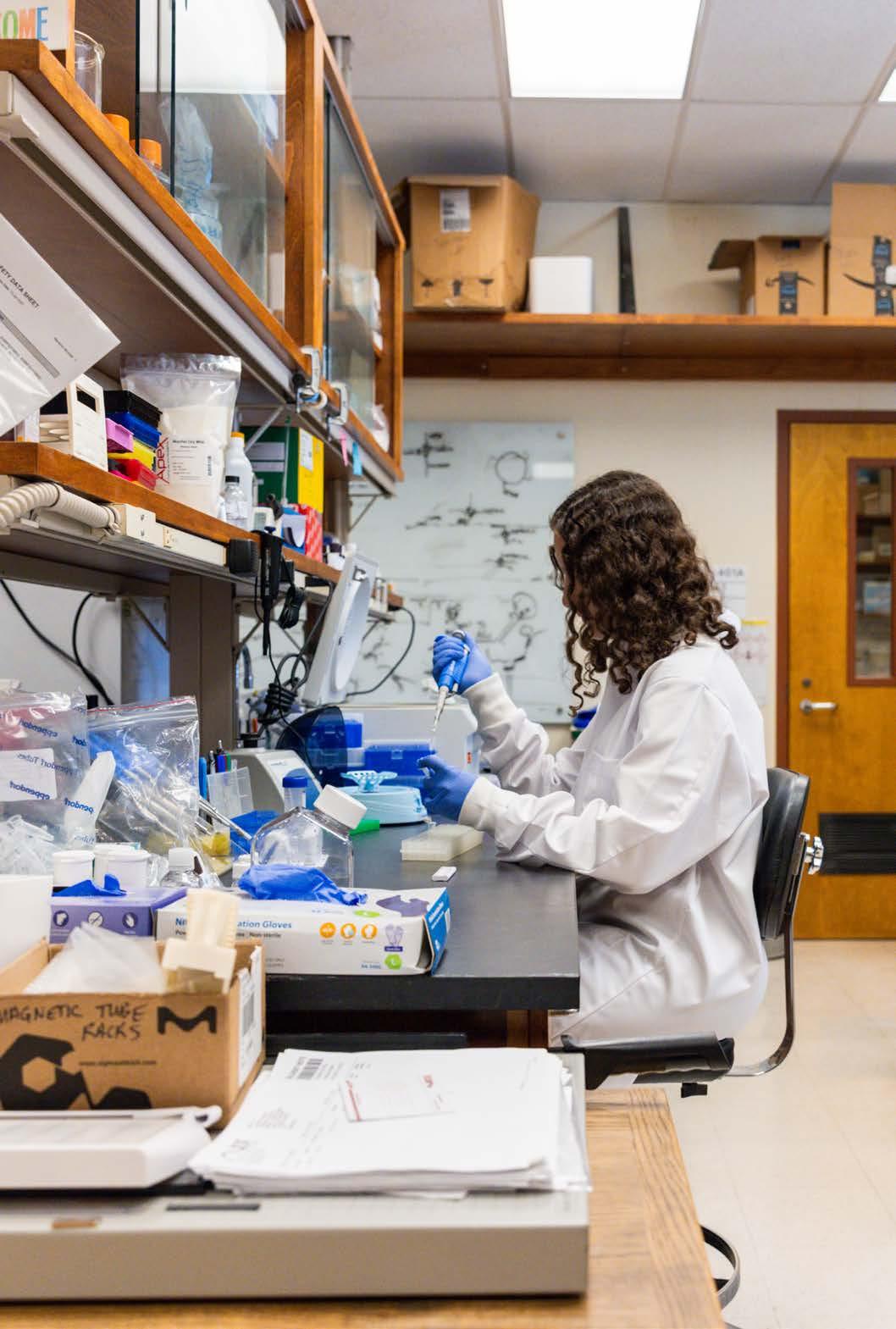


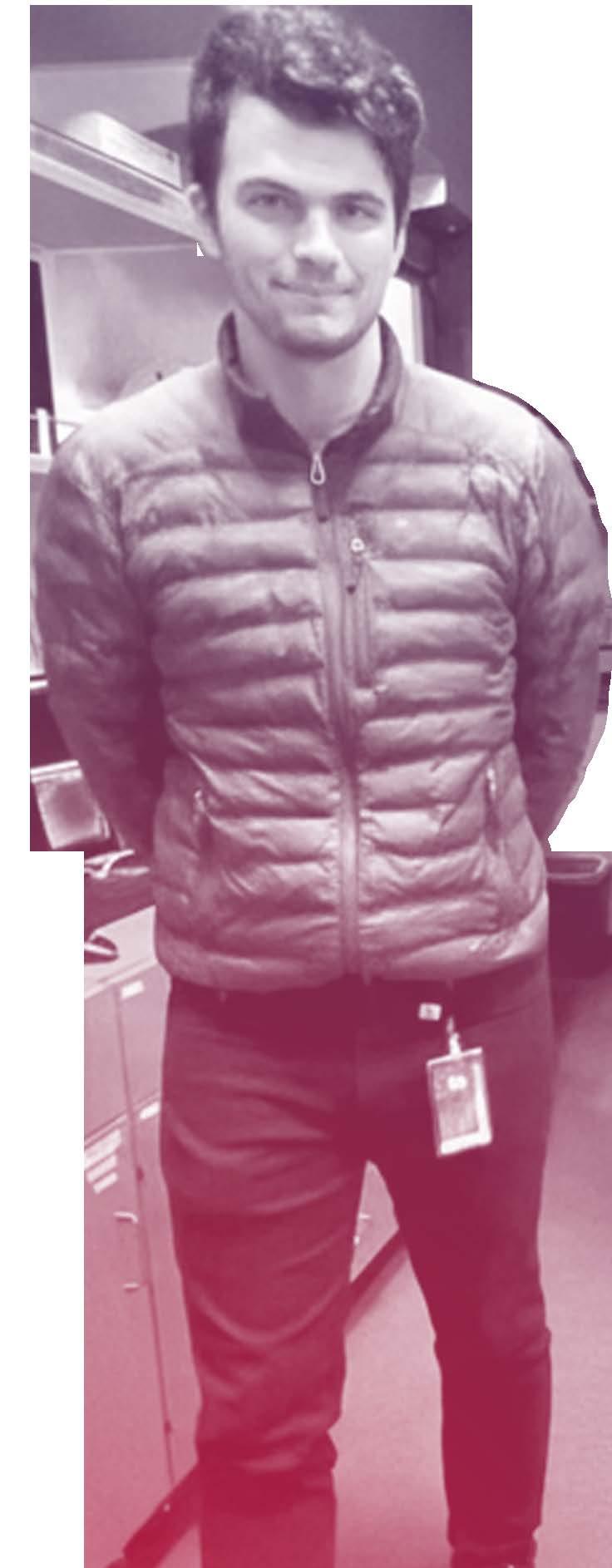

SENIOR MEMBERS 24
FELLOWS 20
Shibin Jiang, Fellow
Wyant College of Optical Sciences
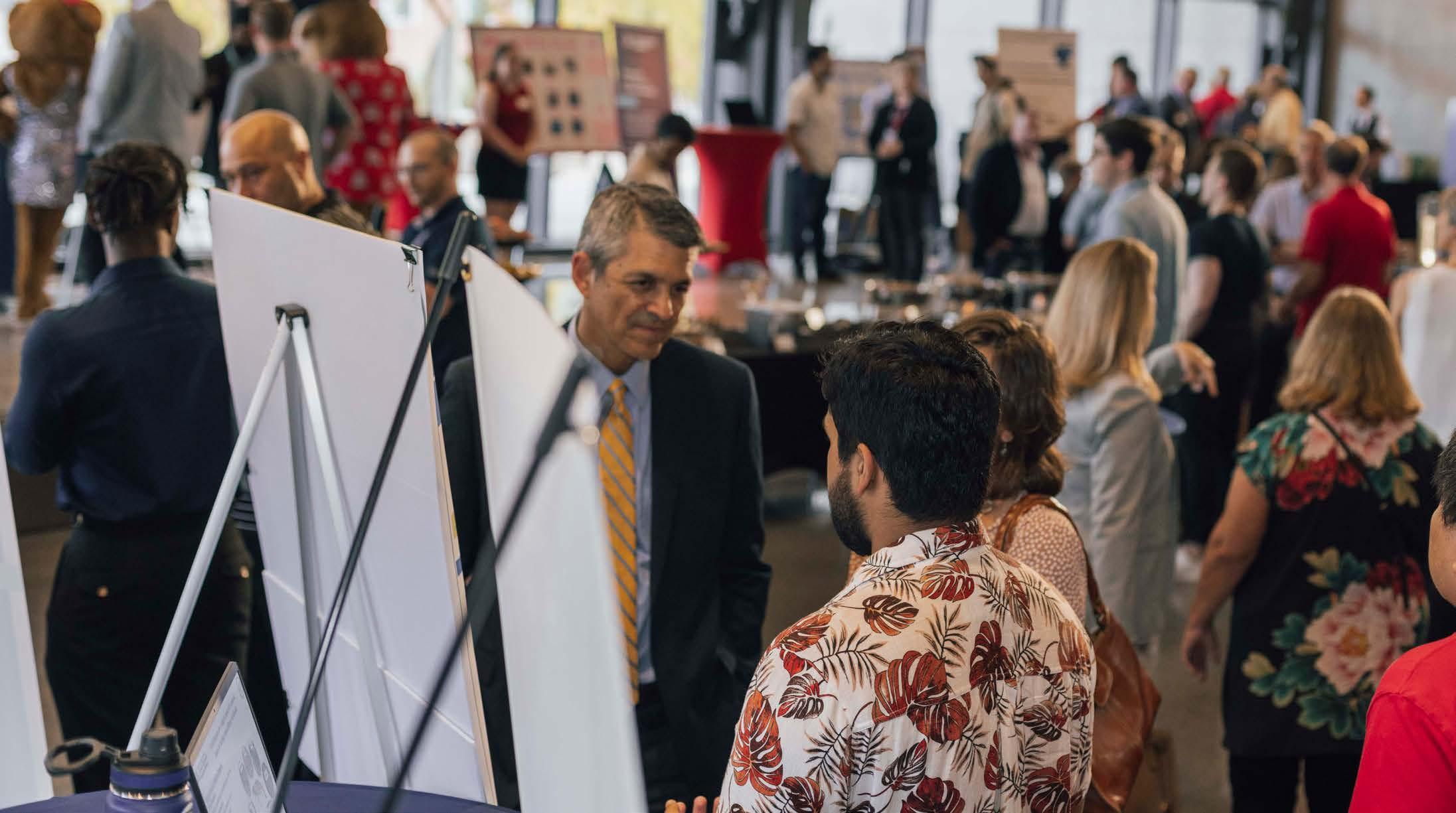
Jiang has been recognized globally as a pioneer in photonic glasses, fiber amplifiers and lasers, and he holds 52 U.S. patents. As an entrepreneur, he founded or co-founded several companies, including NP Photonics, AdValue Technology, AdValue Photonics and Arizona Industrial Lasers.
His patents in fibers enhanced with rare-earth elements have enabled the creation of high-peak-power fiber amplifiers and lasers able to deliver high power in short pulses, which are integral to ultrafast lasers, wind detection, space applications and coherent lidar able to determine an object’s velocity and distance.
“I surely will continue to work hard, hoping to produce more useful inventions and creative works to make a little bit of a contribution to society and humankind.”
Abhijit Mahalanobis, Fellow College
of Engineering
Mahalonobis’ research focuses on video and image processing for defense applications and weapons and sensor systems, especially automatic target recognition. He has over 190 journal and conference publications, and holds six patents.
Before joining the U of A in 2022, Mahalanobis was an associate professor at the Center for Research in Computer Vision at the University of Central Florida and a senior fellow at Lockheed Martin in Orlando. He has also worked at Raytheon and Lockheed Martin, has partnered with several small businesses on projects with the U.S. Army and Navy, and was a faculty member at the University of Maryland.
“I am humbled and deeply honored … I hope to foster creativity in our students, and contribute to innovative solutions for challenging problems in my areas of research.”
Jennifer Barton, Senior Member College of Engineering, BIO5 Institute
Through her research, Barton has developed a device that has become known as the “falloposcope” – an endoscope so fine that it can see into the fallopian tubes to detect early ovarian cancer.
She is the Thomas R. Brown Distinguished Chair of Biomedical Engineering and director of the university’s BIO5 Institute. She holds eight patents, and as the director of BIO5, she helps lead over 350 faculty members to catalyze interdisciplinary research on biological grand challenges. Today, she serves as the interim vice provost for health programs at the University of Arizona Health Sciences.
“I am deeply honored … This distinction reflects not only my work but also the incredible support and collaborative environment fostered by the University of Arizona.”




“We are in the service of, not to ourselves, but to those who are counting on us.”
—ROBERTA DIAZ BRINTON

Roberta Diaz Brinton, PhD, has built a career defined by bold innovation and a deep commitment to translating discovery into impact. Her research began when she was a graduate student at the U of A, where she first explored how the brain encodes information, an inquiry sparked by working with children who had suffered brain damage. That early insight led her to a lifelong pursuit of understanding and treating neurodegenerative diseases, particularly Alzheimer’s and Parkinson’s.
Her breakthrough came when she discovered that the molecule allopregnanolone could regenerate nerve cells, an observation made in a Petri dish that launched decades of research. That discovery, rooted

in her graduate work at the U of A, became the foundation for a new therapeutic approach targeting neural stem cells to restore brain function. Brinton’s work exemplifies the longterm work of biomedical innovation, where curiosity-driven science evolves into transformative technologies.
Recognizing that generating real-world impact requires more than research, Brinton founded NeuTherapeutics to bridge the gap between lab and patient. She credits Tech Launch Arizona as a vital partner in that journey, providing expertise, strategy and a collaborative spirit that helped her navigate the complexities of commercialization. Her approach to innovation is purpose-driven, grounded in the belief that science must serve those who are counting on it.
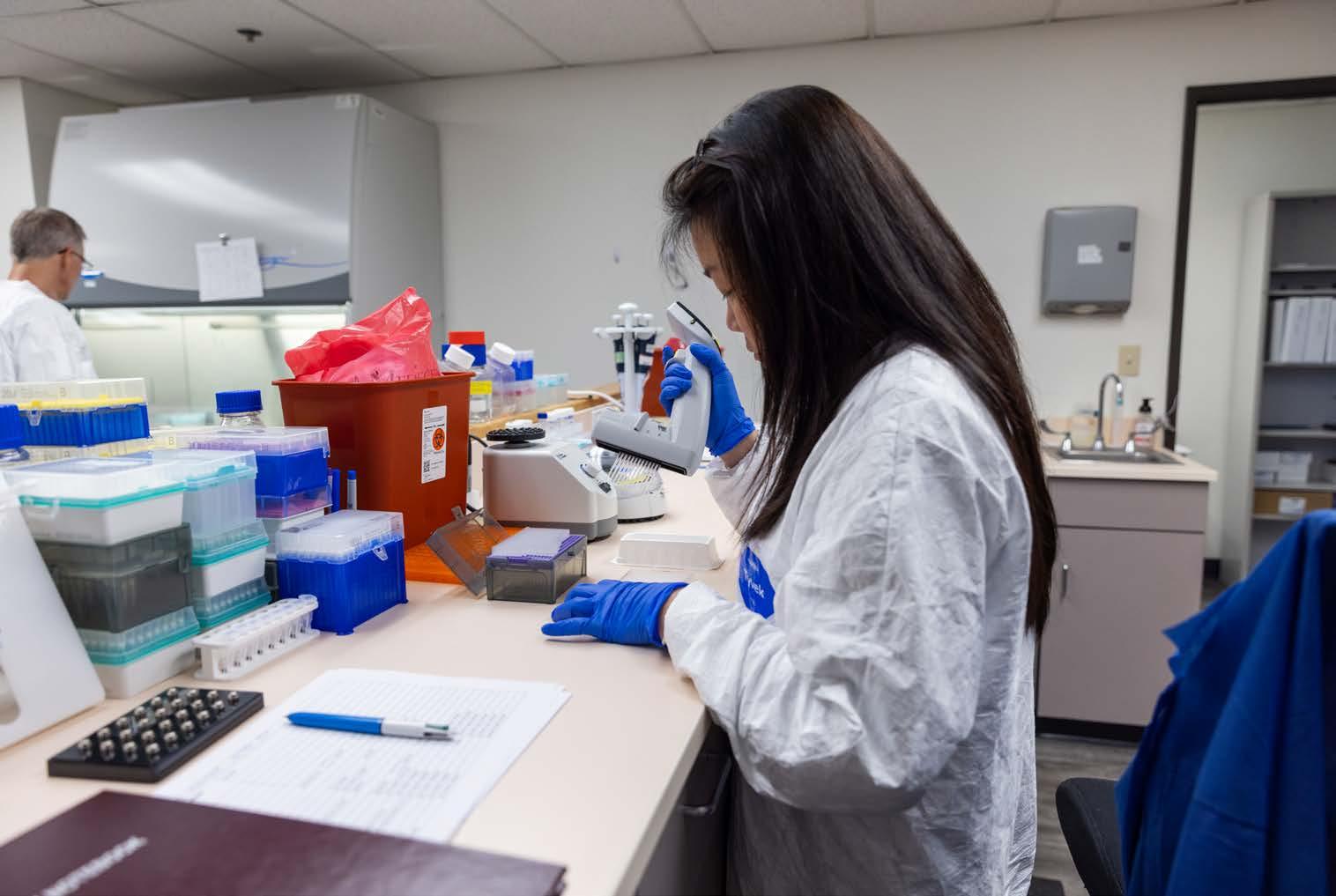
Co-founded by University of Arizona researcher and professor of pathology and laboratory medicine Mark Nelson, Precision Epigenomics, Inc., is transforming cancer diagnostics through its groundbreaking molecular technology platform. The company’s analysis platform has led to the commercial launch of its first product, the EPISEEK® Multi Cancer Early Detection test, capable of identifying over 60 cancer types from a simple blood draw.
With support from Tech Launch Arizona’s NSF I-Corps and Flinn BioEntrepreneurship programs, the company refined its business model and built a robust intellectual property strategy. Networking
events hosted by Tech Launch Arizona have helped connect the company with Arizona’s biotech community, laying the foundation for its rapid growth and clinical validation success.
Now backed by a Small Business Innovation Research grant from the National Cancer Institute and initial investment, the company is poised to expand its domestic and global footprint. The Startup of the Year award affirms the team’s vision and progress, marking a milestone in their journey to bring life-saving diagnostics to market.


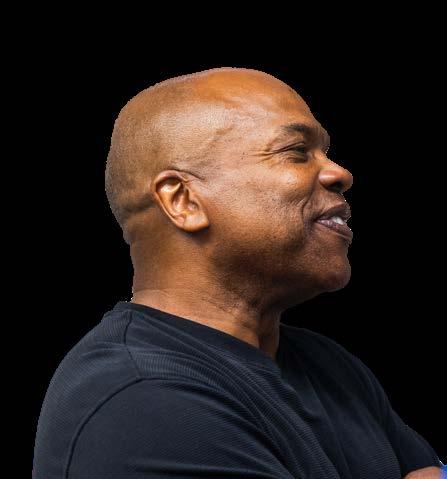
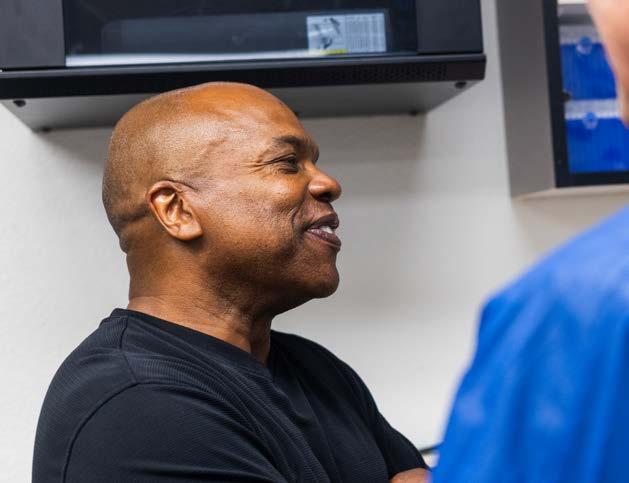
“We are grateful for this prestigious award, and we are excited that our technology to diagnose cancer early is effective and can have a large impact on the world.”
— MARK NELSON

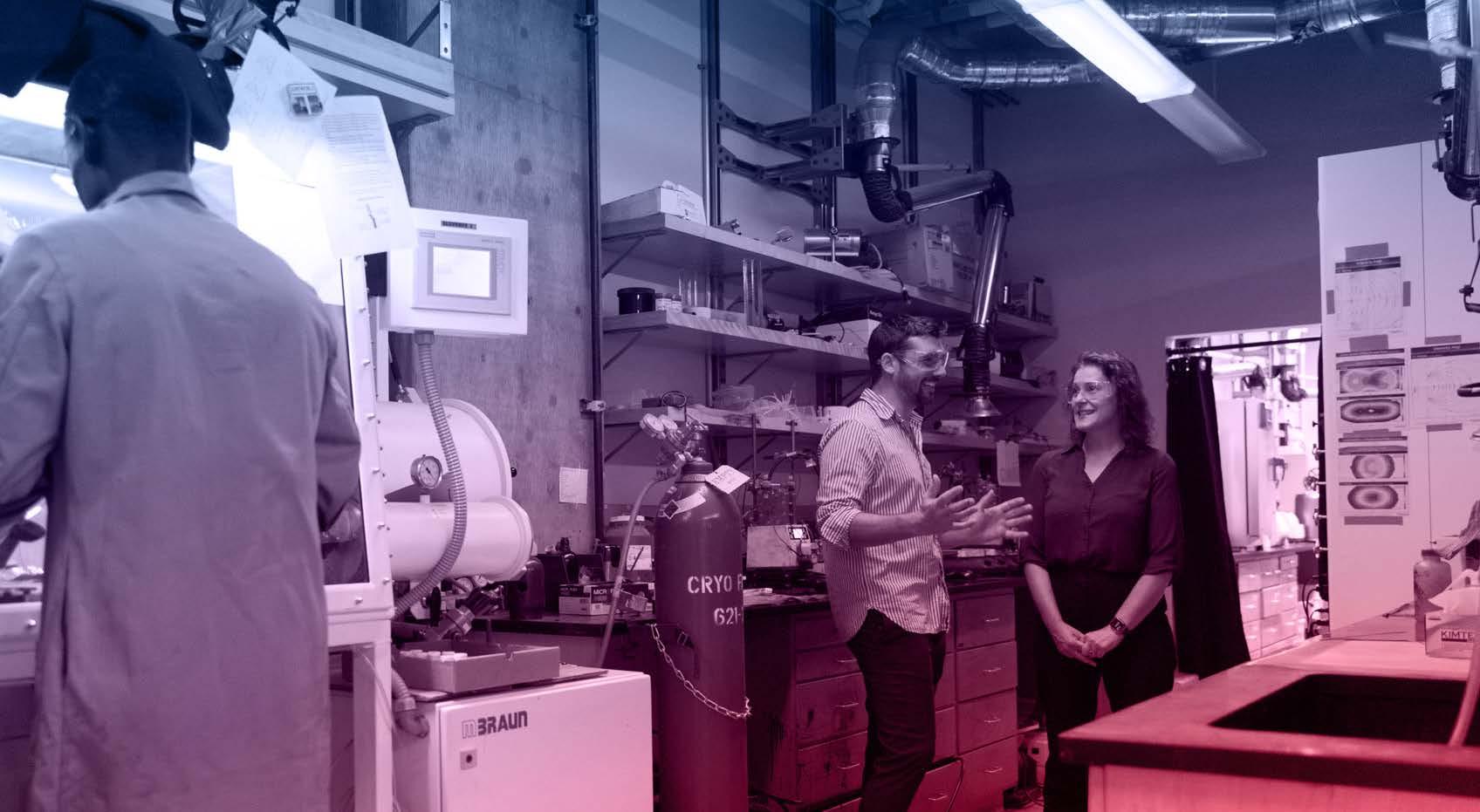
“We owe it to the public to work on things that make people’s lives better — and inspire a future that’s brighter for all of us.”
—CARMALA “CARMIE” GARZIONE
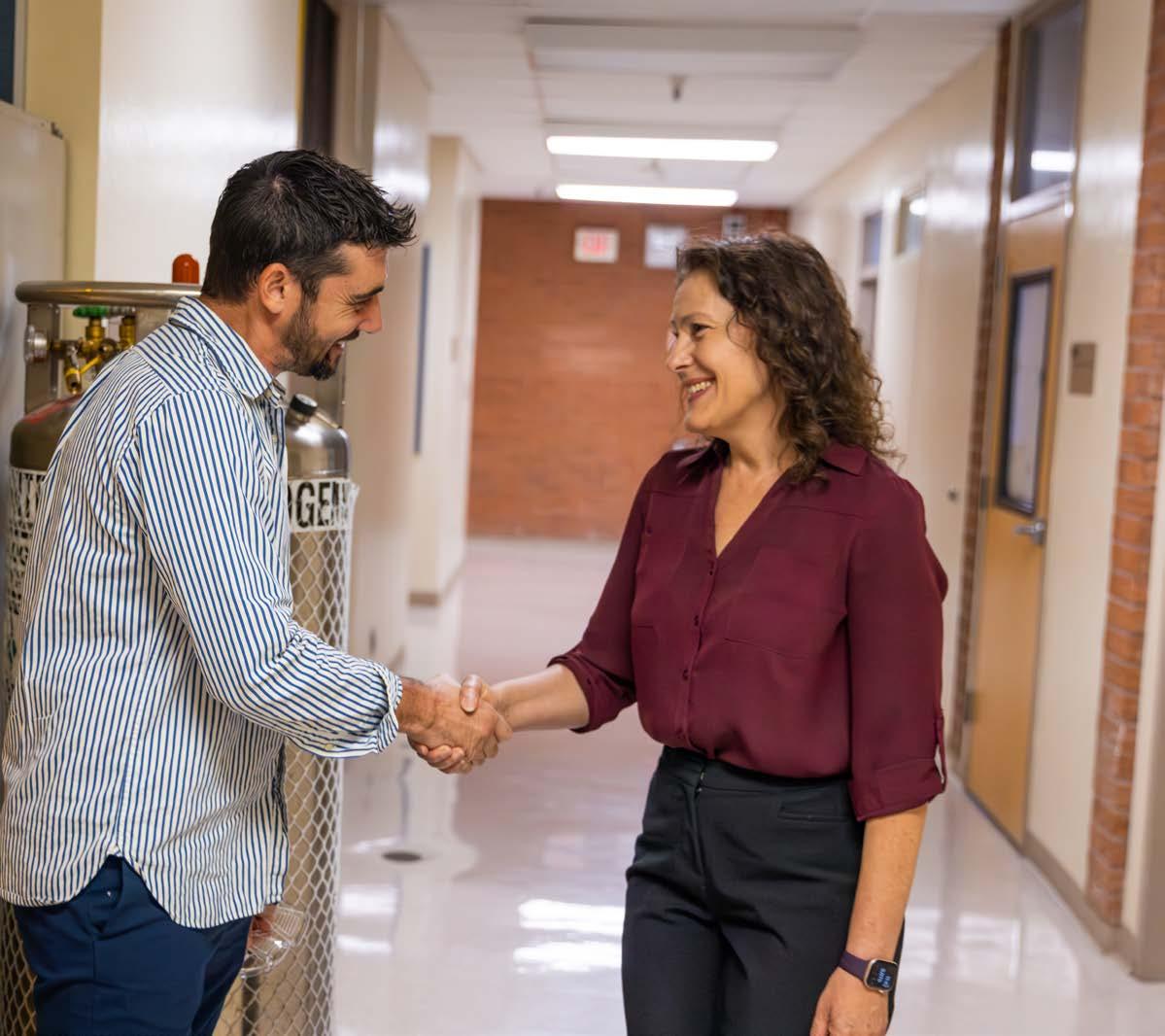
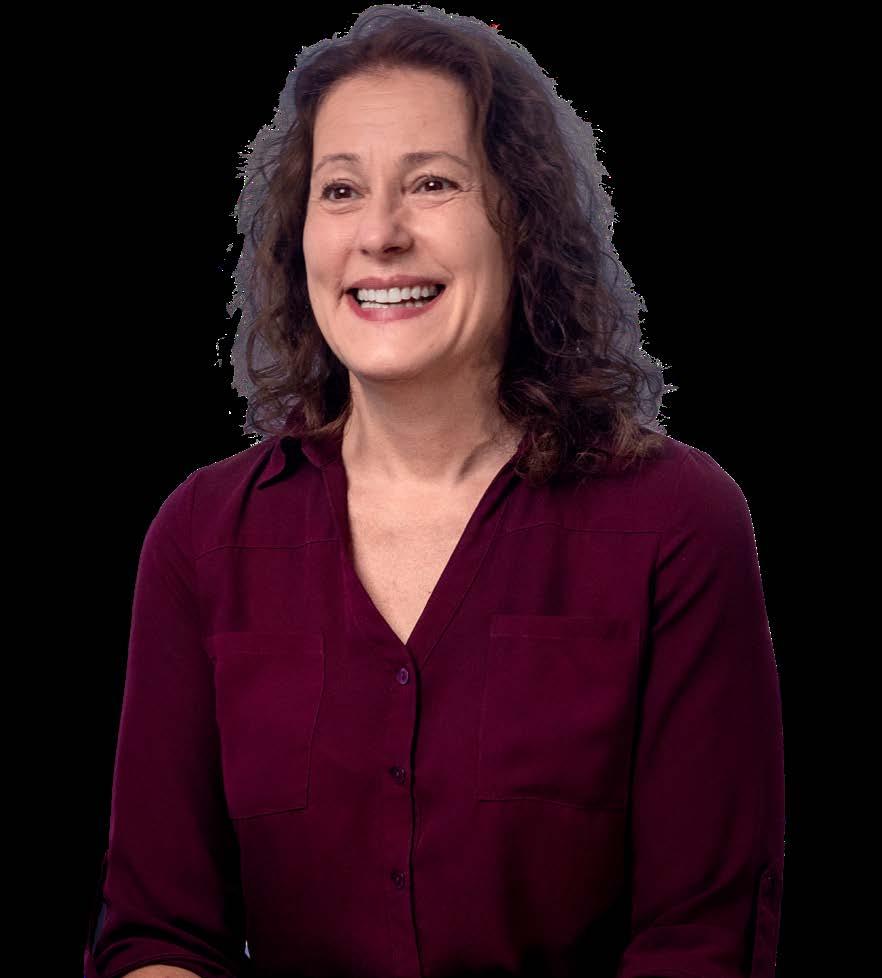
Under the leadership of Dean Carmala “Carmie” Garzione, the University of Arizona College of Science has become a model of collaboration and innovation, fostering a culture where basic research is not only celebrated but actively translated into realworld impact. With a deep belief in the power of discovery science to improve lives and the planet, Garzione has championed efforts to connect faculty with Tech Launch Arizona, helping them see the broader applications of their work.
Through intentional engagement — such as inviting TLA to faculty events and new faculty orientations — the College has lowered
barriers to commercialization and empowered researchers to pursue the highest impact for their discoveries. Garzione emphasizes that commercialization is not just about technology transfer; it’s about honoring public investment in research by ensuring it reaches the people it is meant to serve.
This recognition celebrates a college-wide commitment to innovation, driven by faculty, students and staff who are eager to see their work improve public health, the environment and the economy. As Garzione puts it, the partnership with TLA “enables sparks to fly,” turning curiosity-driven research into transformative solutions.
Jim Laugharn
“It’s not an investment; it’s involvement. I’m here to help launch ideas that matter.”
—JIM LAUGHARN

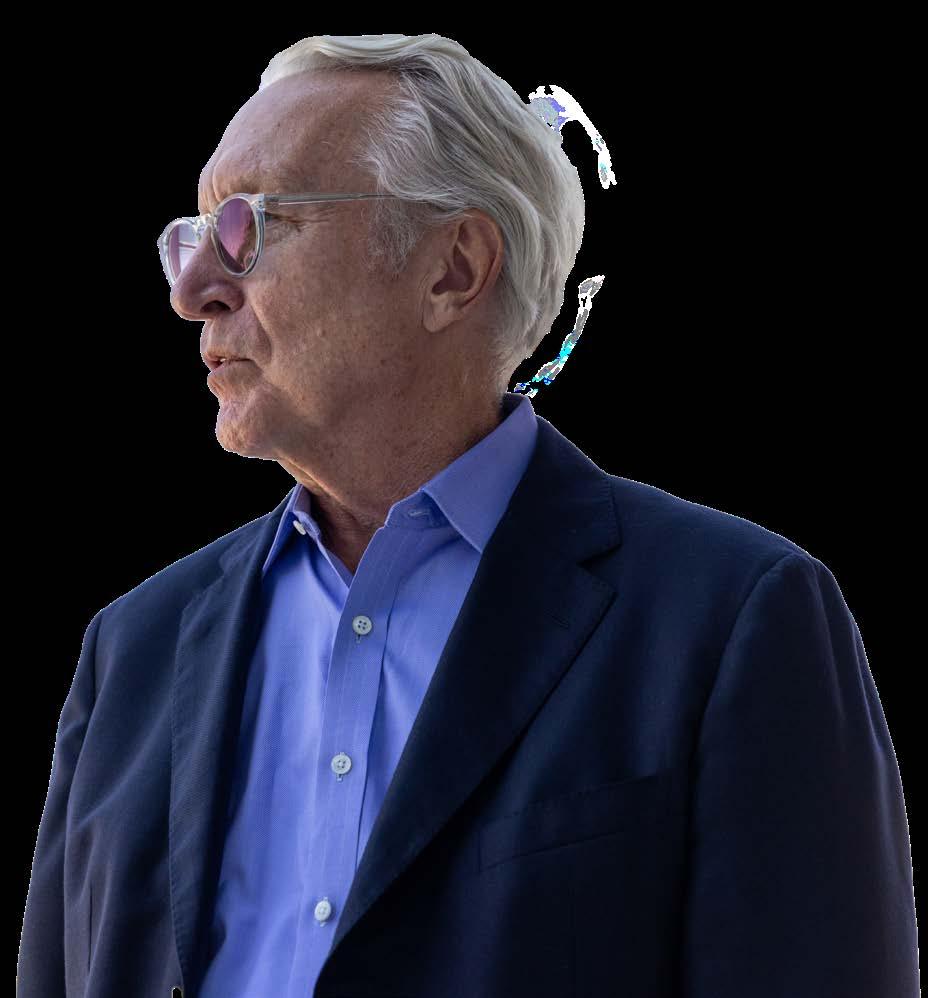
Jim Laugharn is a serial entrepreneur, scientist and investor whose career has been defined by a relentless focus on impact.

From his early days as a student researcher at the University of Arizona to founding a biotech company that set the gold standard in genetic oncology diagnostics, Laugharn has consistently turned ideas into products that improve lives. His company, Covaris, grew from a single concept into a globally adopted technology, remaining profitable for over two decades.

Now retired from day-to-day operations, Laugharn has turned his attention to strengthening the innovation ecosystem in Southern Arizona. Drawing on his experience
in Boston’s vibrant biotech scene, he’s become a champion for earlystage commercialization at the University of Arizona. His support for the Wildcat Philanthropic Seed Fund reflects his belief in nurturing bold ideas — not for financial return, but for the future of innovation and entrepreneurship in the region.
Laugharn’s contributions go beyond funding. He brings a mindset shaped by decades of product development, emphasizing the importance of defining customers, building meaningful technologies, and doing things right the first time. His involvement with Tech Launch Arizona is helping bridge regional gaps and inspire a new generation of impact-driven founders.
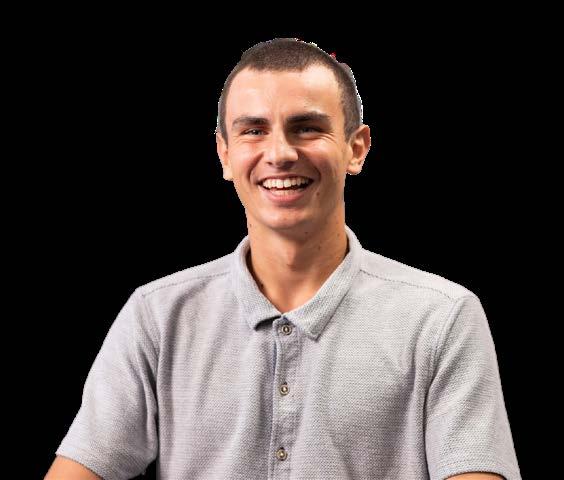
“It’s not just a publication — it’s a new technology. A tool that could help people see deeper into the cosmos and into biology.”
—NICOLAS DESHLER
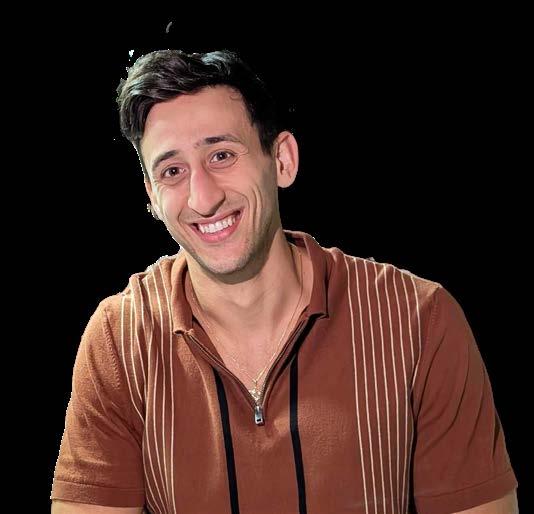
“We found a simple solution to a hard problem. If we can help space or exoplanet research in any way, that’ll be awesome to know that we were a part of it.”
—ITAY OZER

Nicolas Deshler and Itay Ozer, PhD students in optical sciences, are being honored for their groundbreaking invention: a quantum optimal coronagraph that pushes the boundaries of imaging and exoplanet discovery. Developed through a collaboration that began during an internship and flourished at the University of Arizona, their device uses spatial mode sorting to null starlight and reveal dimmer objects like exoplanets with unprecedented precision. Their innovation reaches the quantum limits of information extraction, offering transformative potential for astronomy, microscopy and telecommunications.
The duo’s complementary strengths — Nicolas in theory and simulation, Itay in experimental optics — enabled
them to rapidly prototype and validate the technology. With support from their advisors and funding from Raytheon, they worked with Tech Launch Arizona to secure a patent, praising TLA’s technical engagement and streamlined process. Their invention not only advances scientific understanding but also opens doors to commercialization, with applications ranging from space-based observatories to high-bandwidth satellite communications.
For both students, the journey from lab to patent has been deeply rewarding. Their work exemplifies how studentled research can evolve into real-world solutions, and their recognition as Student Innovators of the Year highlights the entrepreneurial spirit thriving at the U of A.

Gregg Scoresby
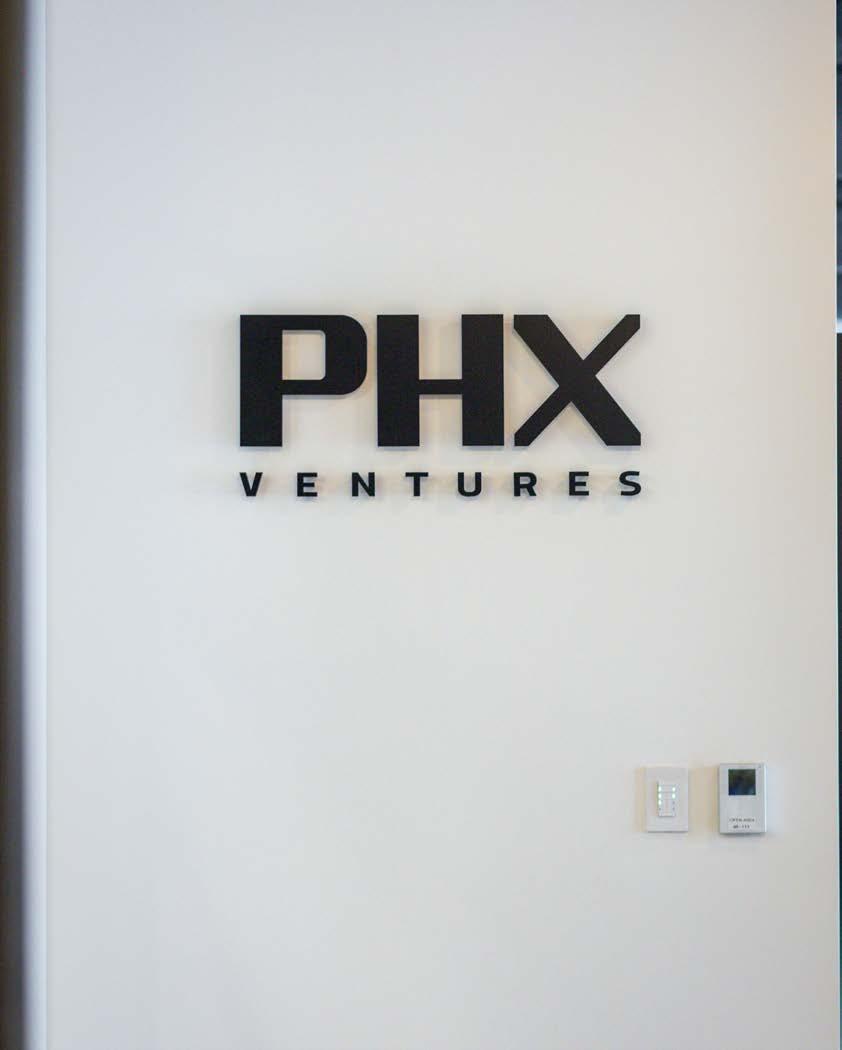
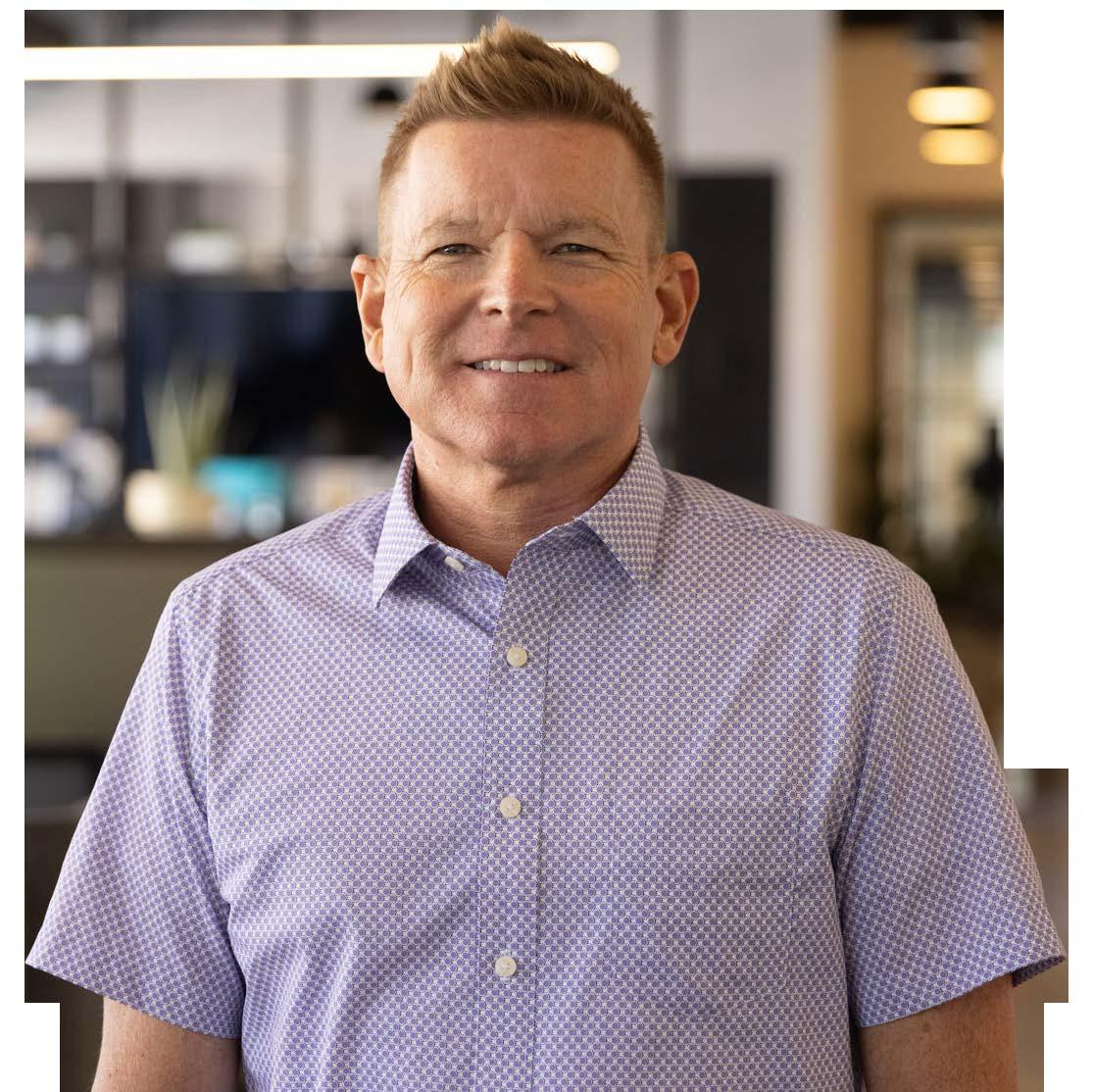

“I want more people to care about what I care about — building, starting, scaling and having successful companies here in Arizona.”
—GREGG SCORESBY

Gregg Scoresby, founder of CampusLogic and PHX Ventures, has been a driving force in advancing Arizona’s innovation economy. His leadership helped transform Scholarship Universe, a University of Arizona-developed platform, into the nation’s leading scholarship software, ultimately contributing to CampusLogic’s acquisition by Ellucian.
Through PHX Ventures, Scoresby has invested in 20 Arizona software startups since 2020, with a goal of reaching 30 by 2030. His commitment goes beyond funding;
he has built a support ecosystem through PHX Forward, a nonprofit offering workshops, peer-led masterminds and the Fast Forward accelerator to help founders scale and raise capital.
Scoresby’s vision for Arizona centers on closing the “venture deficit” by increasing company formation, capital velocity and community vibrancy. His partnership with Tech Launch Arizona reflects a shared mission to empower entrepreneurs and grow highimpact companies across the state.
To help early-stage startups, TLA launched the Wildcat Philanthropic Seed Fund (WPSF) in 2024. An evergreen fund, the WPSF – funded by philanthropic donations – reached its initial fundraising goal of $2 million this year and began accepting applications for investments.
“This could be a gamechanger for our startups. University startups are working to commercialize extremely early technology, so our goal is to provide some initial seed funding to get them to a level that attracts further investment and increases the chances for success.”
– DOUG HOCKSTAD
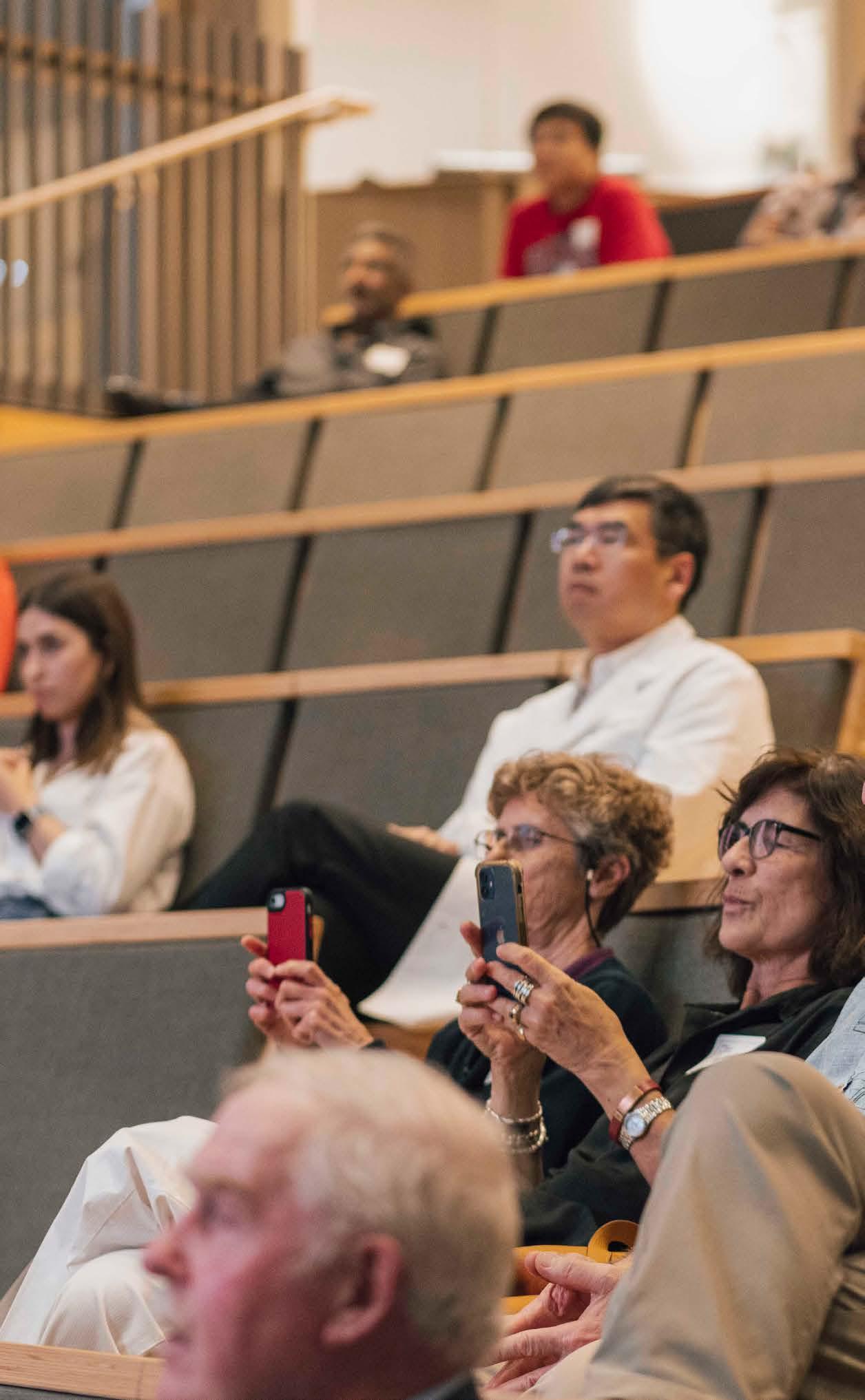
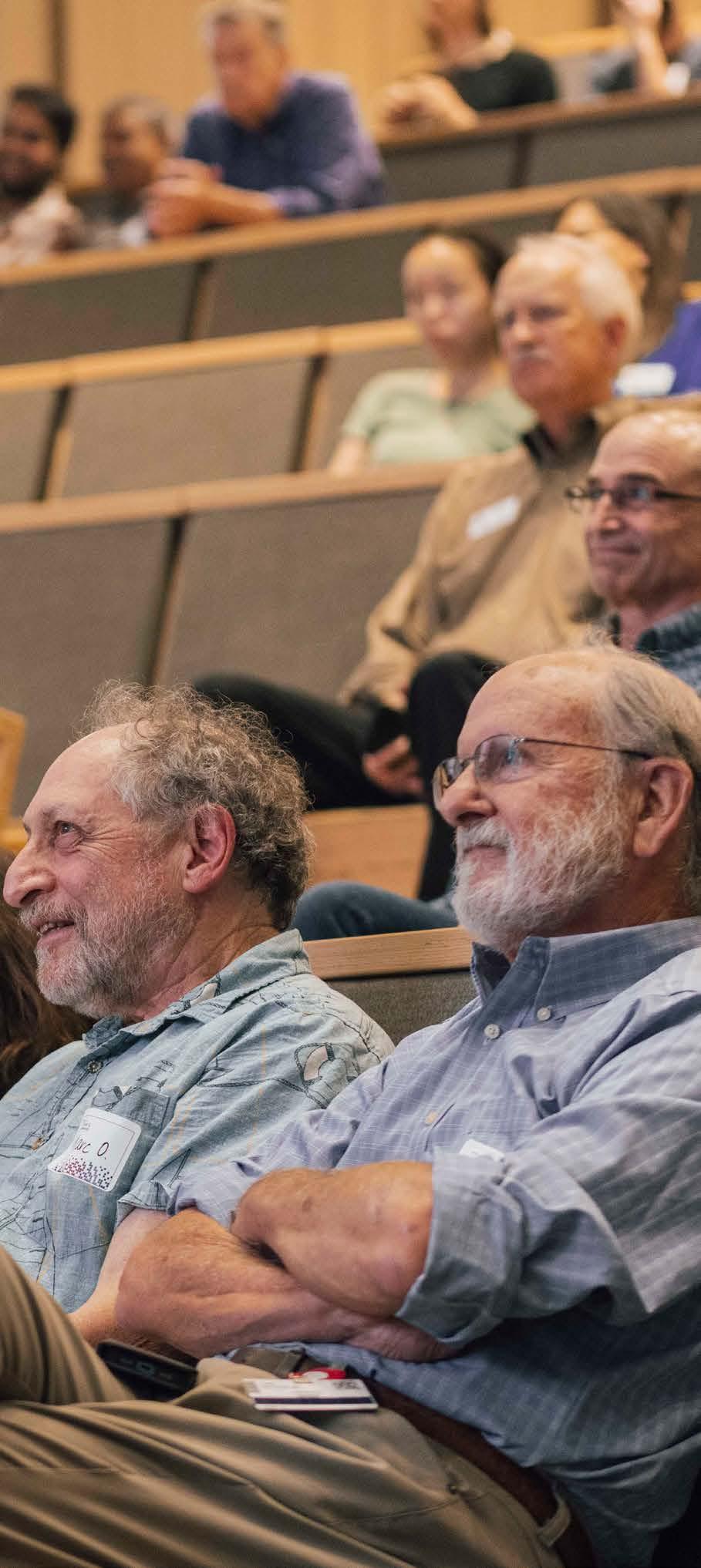
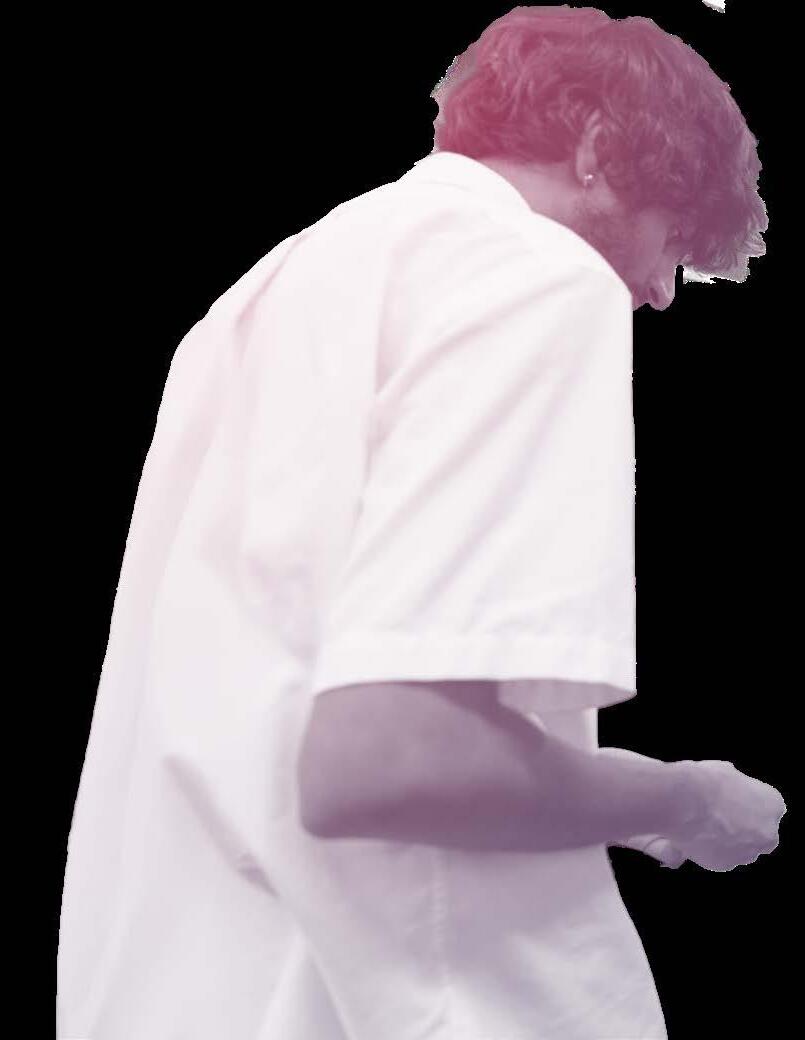
Startups have proven to be an excellent avenue for generating impact from U of A inventions. In an effort to widen the pipeline for these opportunities, we have begun connecting directly to venture studios around the nation and the globe. These organizations systematically comb the landscape for great innovations and matches them with resources like talent and capital. We are strategically reaching out to and building productive relationships with these studios to maximize the opportunities to launch well-positioned startups.
According to the NIH, less than 13% of PhD graduates go on to attain academic positions in the United States. What about the other 87%? Entrepreneurship offers excellent opportunities and an alternate career path for these highly trained and talented individuals, one that leverages their expertise while cultivating them as growing leaders in their chosen fields. In the coming year, we will extend our efforts to engage graduate students in commercialization activities and offer information to help them visualize and pursue potential careers as technical leads of startups.
Early-stage ventures need more than just funding; they require guidance on business strategy, access to expert networks, support in refining their technology for market use and connections to potential partners and customers. To complement the Wildcat Philanthropic Seed Fund, TLA is expanding its support for our growing portfolio of startups to help ensure their success. By strengthening these resources, we aim to give promising U of A innovations the best chance to thrive and create impact in the world. This support helps founders navigate the challenges of building a company while staying focused on advancing their research-driven solutions. Our commitment is to provide tools, mentorship and community to accelerate growth and increase the likelihood of success for these high-potential startups.

ADVISORY BOARD
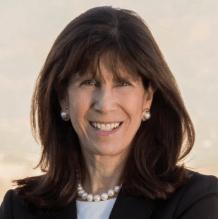


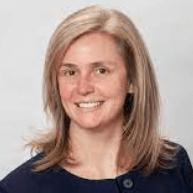


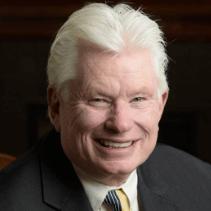
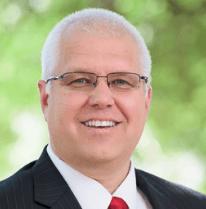
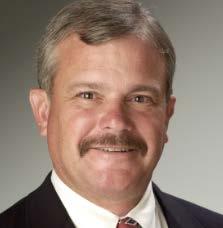

Mara Aspinall Partner, Illumina Ventures
Harry George
Managing General Partner, Solstice Capital Partnership
Larry Hecker Attorney, Hecker PLLC
Kirsten Leute
Senior Vice President of University Relations, Osage University Partners
Andy Lombard
Managing General Partner, HealthImpact Venture Capital
Joann MacMaster Former CEO, Desert Angels
Fletcher J. McCusker CEO, UAVenture Capital
John-Paul Roczniak
President & Chief Executive Officer, University of Arizona Foundation
David Smallhouse
Managing Director, Miramar Ventures
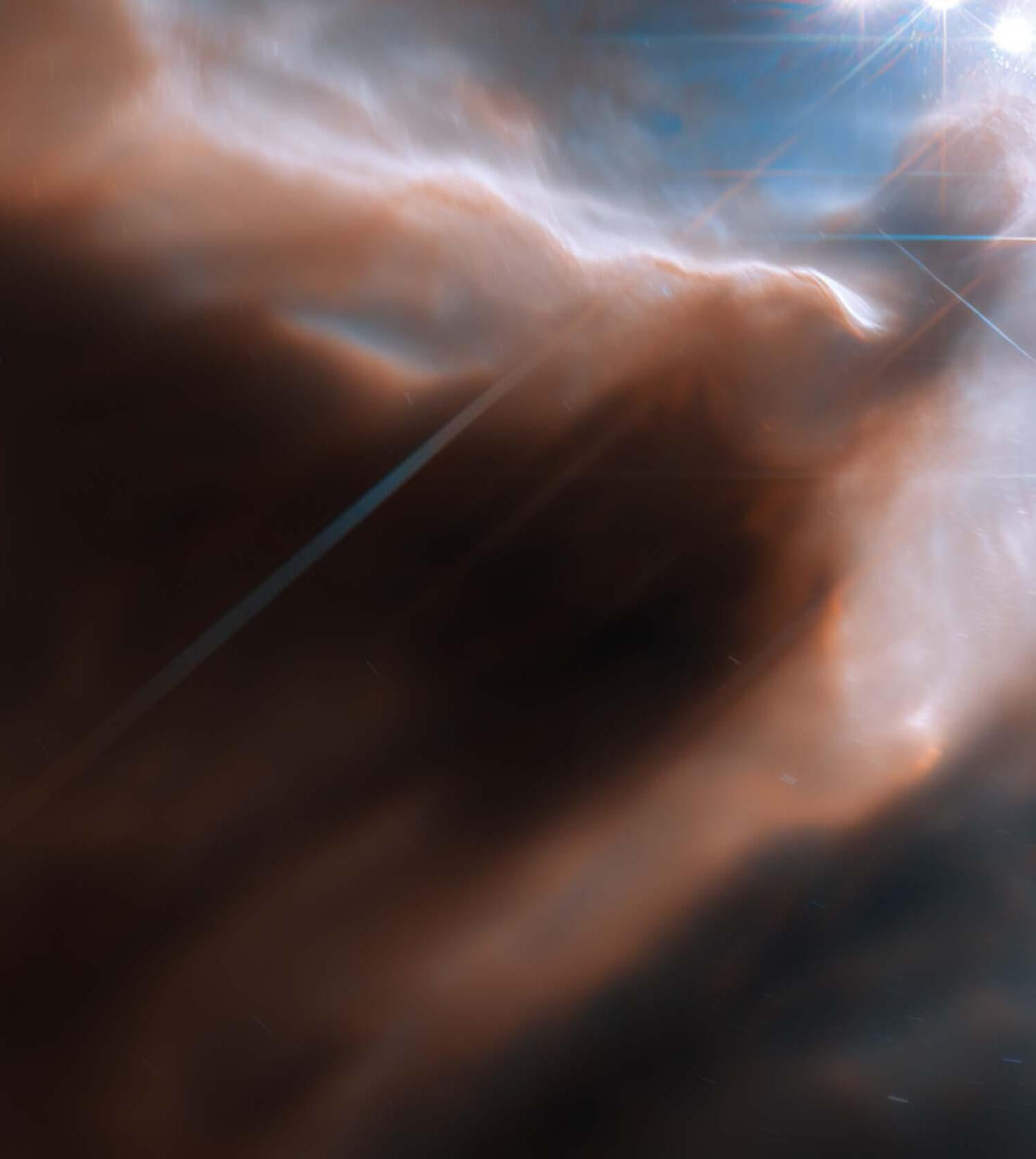
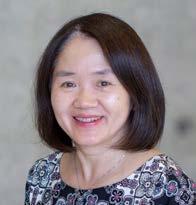
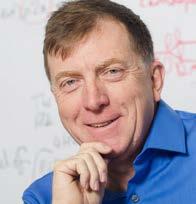
Hong Hua
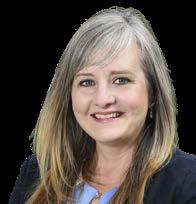



Chris Yoo Xcellerant Ventures
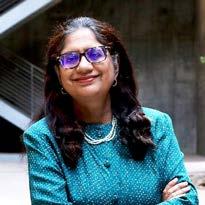

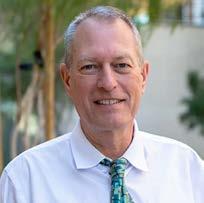

Professor of Optical Sciences, James C. Wyant College of Optical Sciences
Julie Ledford
Associate Professor, Cellular & Molecular Medicine, College of Medicine – Tucson
Jeff Pyun
Professor of Chemistry & Biochemistry, College of Science
Sadhana Ravishankar
Professor, College of Agriculture, Life & Environmental Sciences
Gregory Thatcher Professor of Pharmacology & Toxicology, College of Pharmacy
Joe Valacich
Professor of Management Information Systems, Eller College of Management
Hao Xin
Professor of Electrical and Computer Engineering, College of Engineering
Frederic Zenhausern
Professor of Clinical Translational Sciences, Translational Neurosciences, Biomedical Engineering, and Radiation Oncology, College of Medicine-Phoenix/College of Engineering
We couldn’t do it without the contributions of every team member, so a HUGE shoutout of thanks to our advisory board, our Commercialization Partners, our Faculty Innovation Ambassadors and our staff.
Bruce Burgess Director, Venture Development
Rakhi Gibbons Director of Licensing & Intellectual Property
Douglas Hockstad Associate Vice President
Derick Maggard Director, Student Ventures
Grace Ratje Assistant Director, Finance & Administration
Paul Tumarkin Assistant Director, Marketing & Communications
Michelle Albert Patent Docket Clerk
Julie Barbier Bularzik Venture Development Education Coordinator
Tiara Bertram Licensing Compliance Manager
Karen Carrasco Administrative Associate
Ann Chihak Poff Business Development Analyst
Alex Damiano Manager, Venture Development - Physical Sciences
Garrett Edmunds Licensing Manager, University of Arizona Health Sciences
Carina Enriquez Administrative Associate, Venture Development
Elena Fielder Accounts Payable/Accounts Receivable and Legal Documents Coordinator
Anne Gardner Market Research Manager
Mitch Graffeo
Senior Licensing Manager, College of Medicine - Tucson
Lewis Humphreys
Senior Software & IT Licensing Manager, Eller College Embed
Al Kassam
Mentor-in-Residence
Kelly King
Entrepreneurial Mindset Development Coordinator
Leah Langlais Manager, Venture Development - Life Sciences
Jonathan Larson
Senior Licensing Manager, College of Science
Jianling Liu
Senior Business Analyst
Cathleen Malia Accountant
Tod McCauley
Assistant Director of Licensing, College of Agriculture, Life & Environmental Sciences
Tyler McCusker Coordinator, Commercialization Network
Sarah Moore Intellectual Property Manager
Peter Nestler
Mentor-in-Residence
Linda Portillo Executive Assistant
Lyndsay Troyer
Licensing Associate, Software & Copyright
Paul Valdez Associate Director, Student Ventures
Rich Weite
Senior Licensing Manager, Optical Sciences
Steven Wood
Mentor-in-Residence
TJ Yekini Accountant
Scott Zentack
Licensing Manager, College of Engineering
HERE’S TO A FANTASTIC YEAR!


